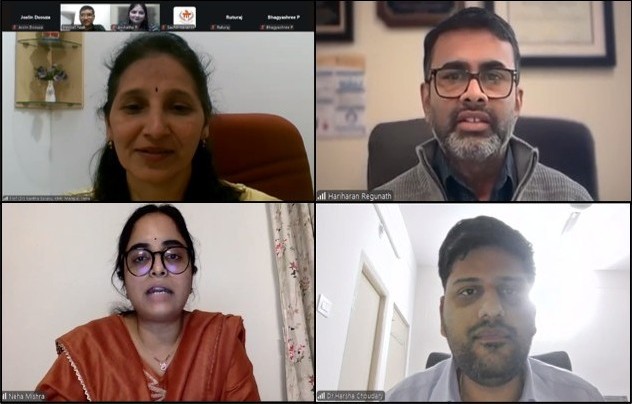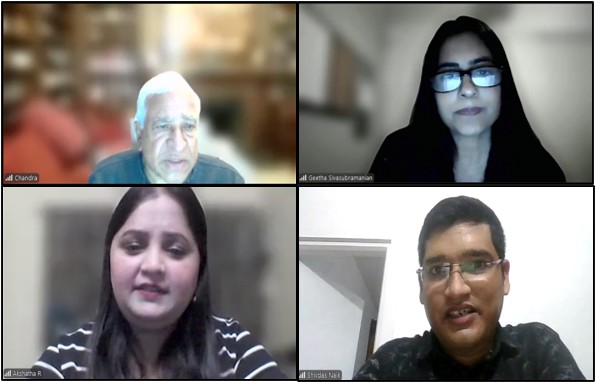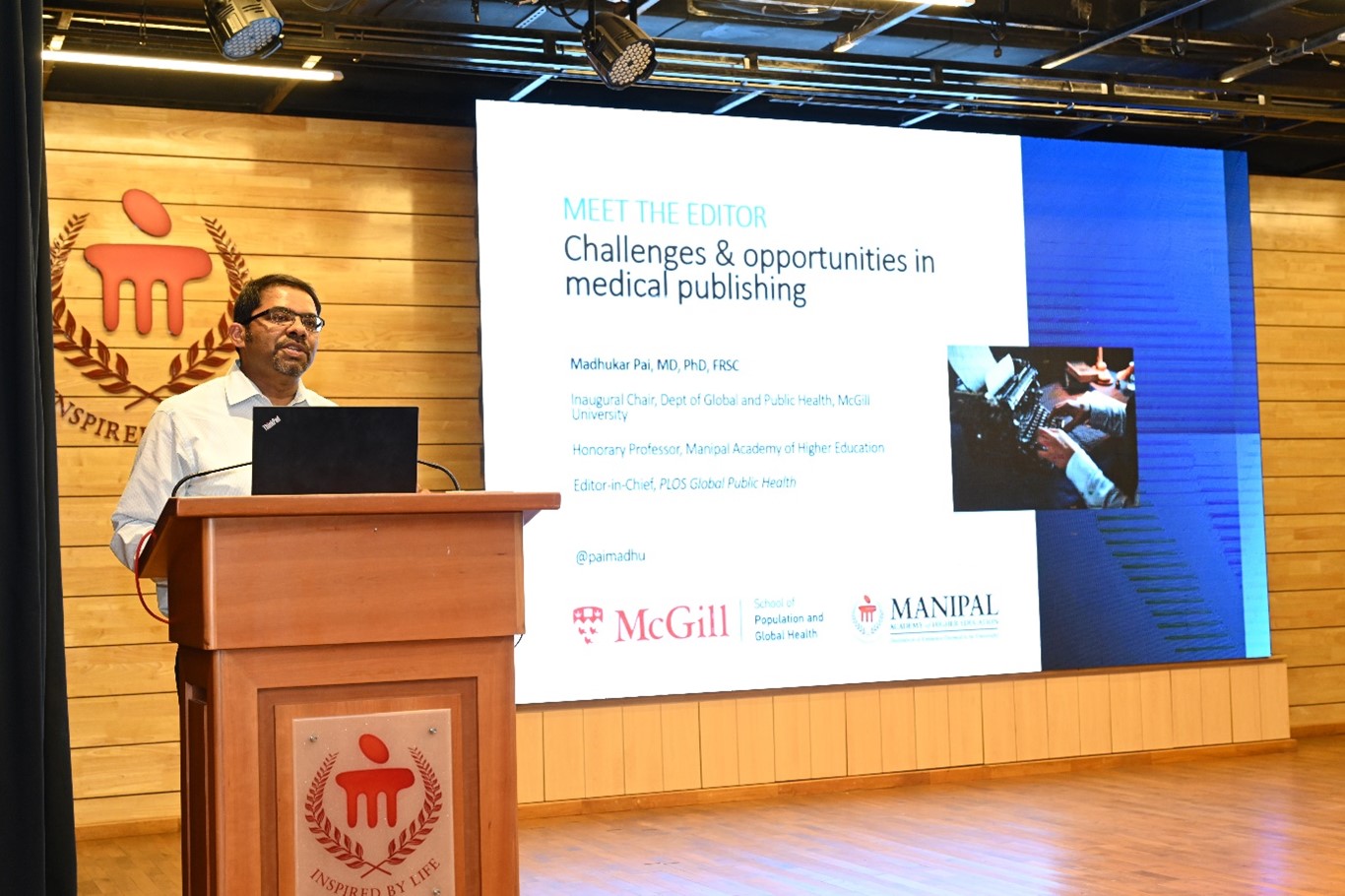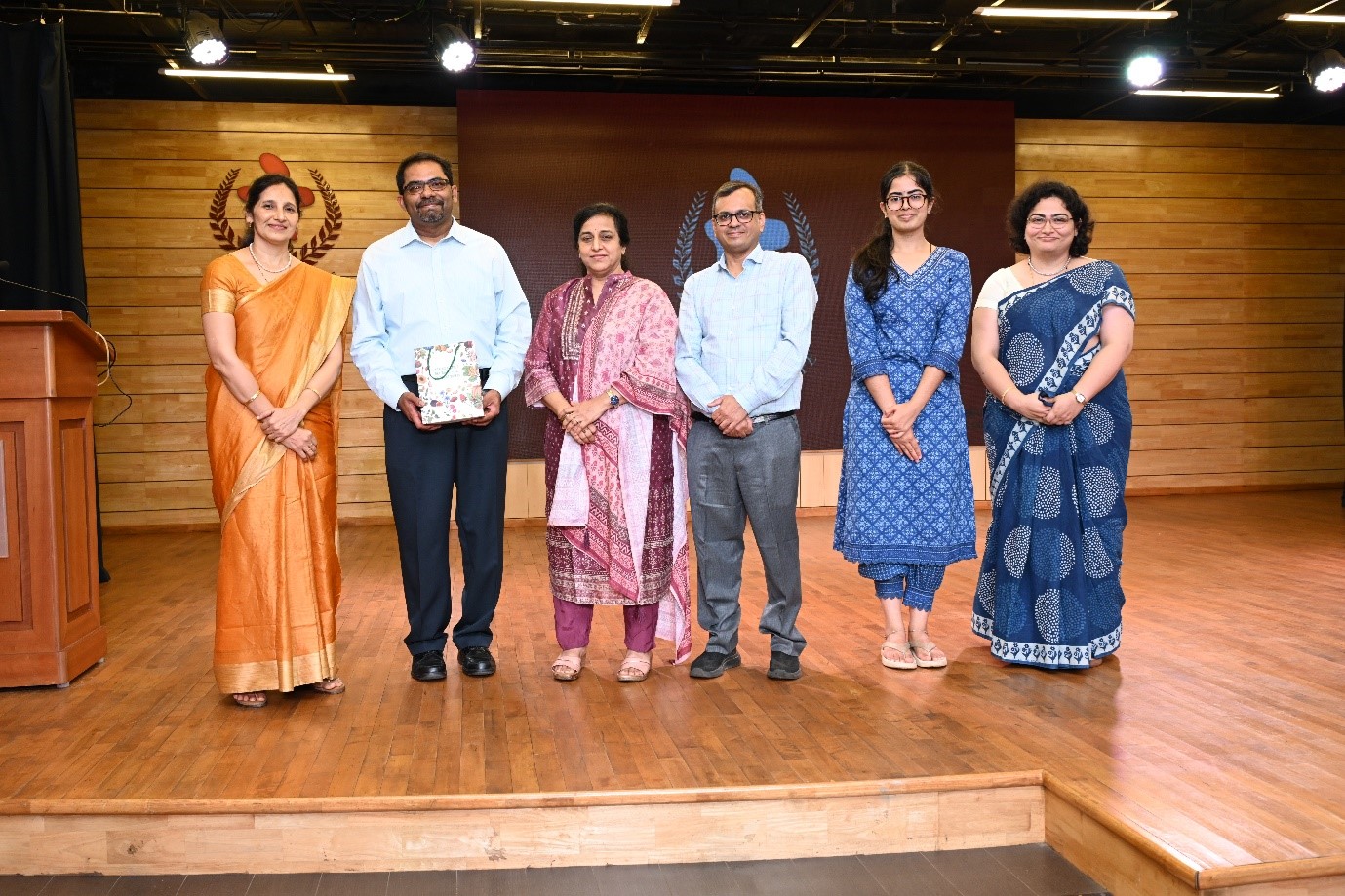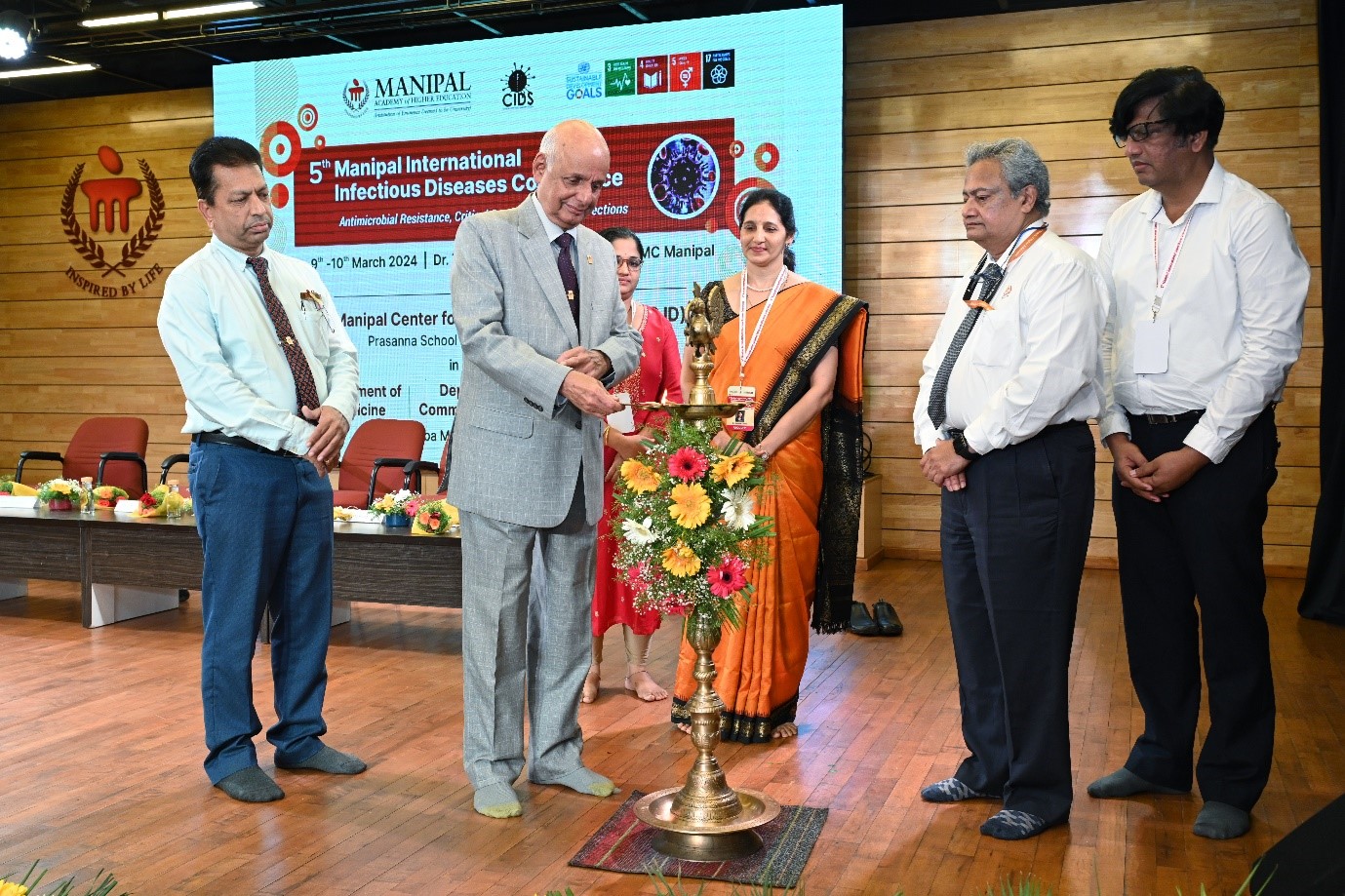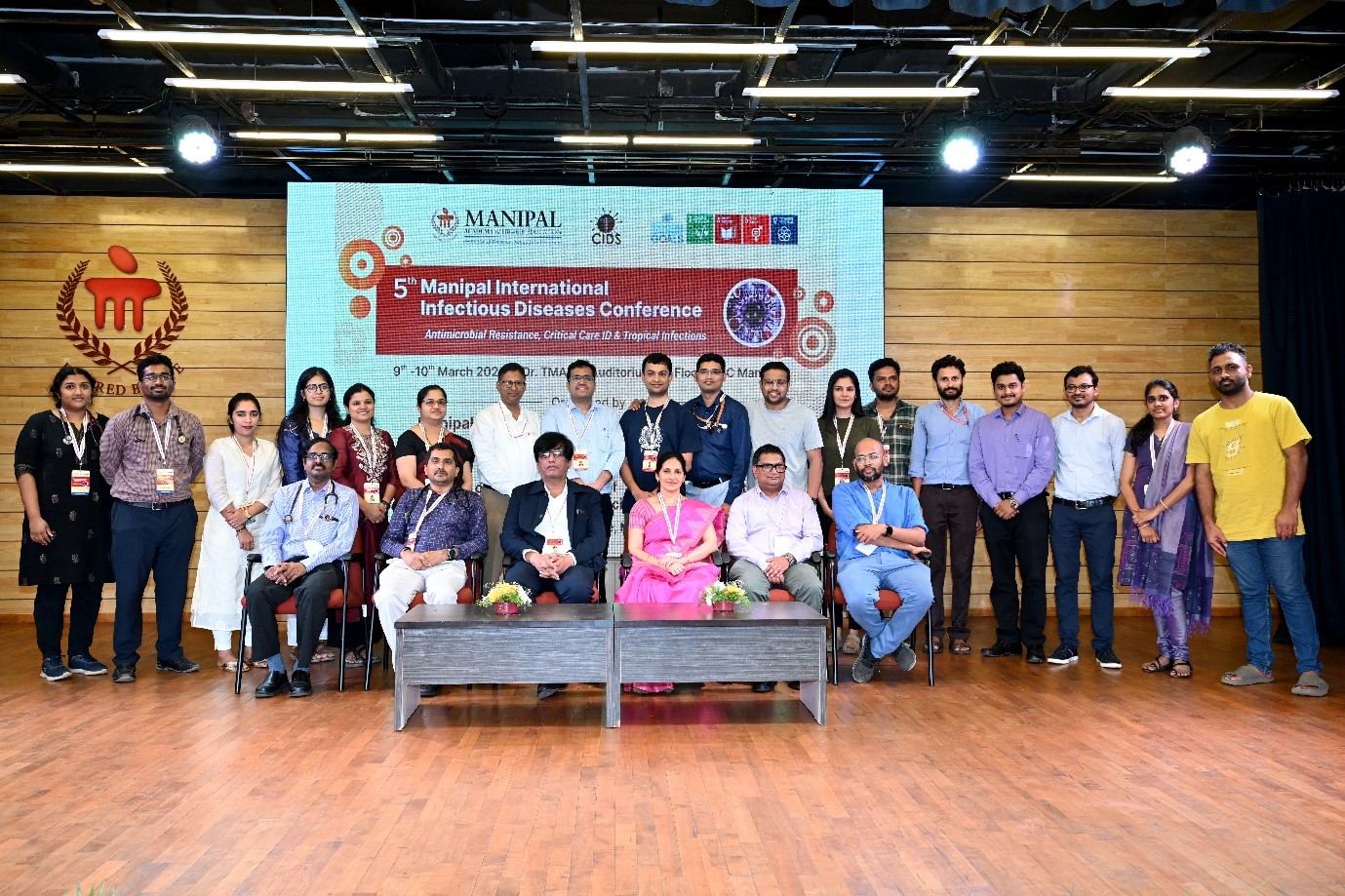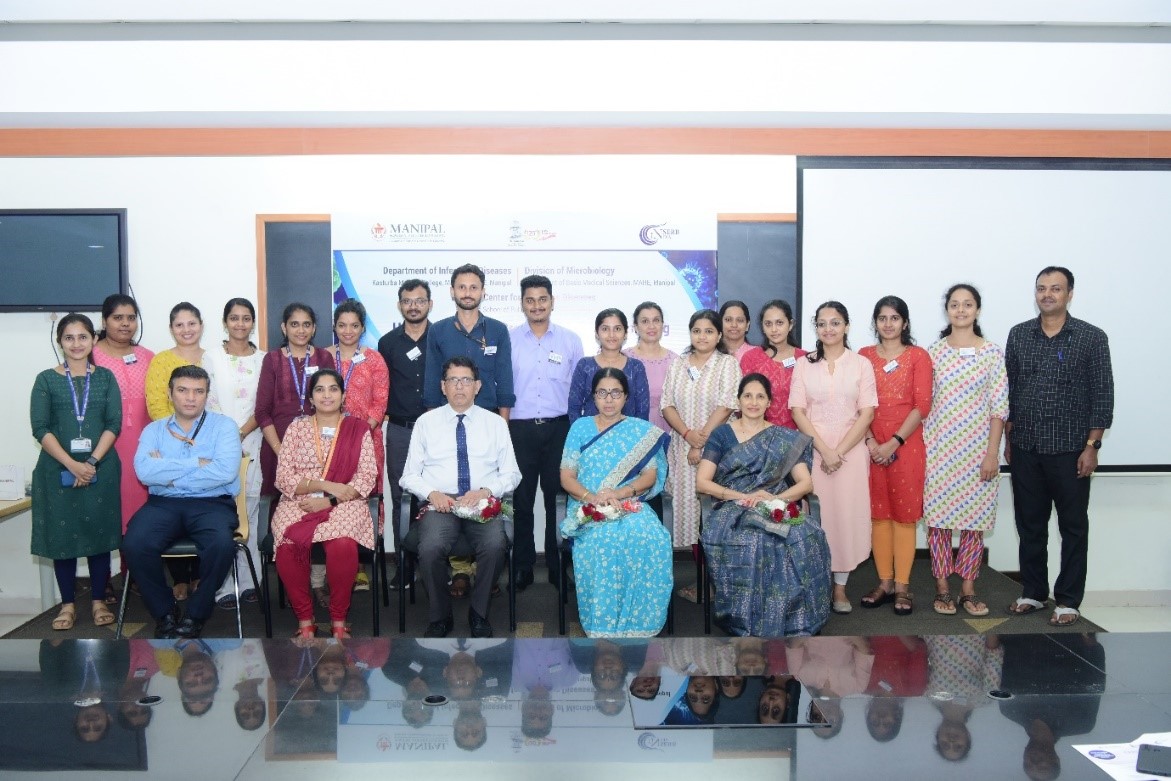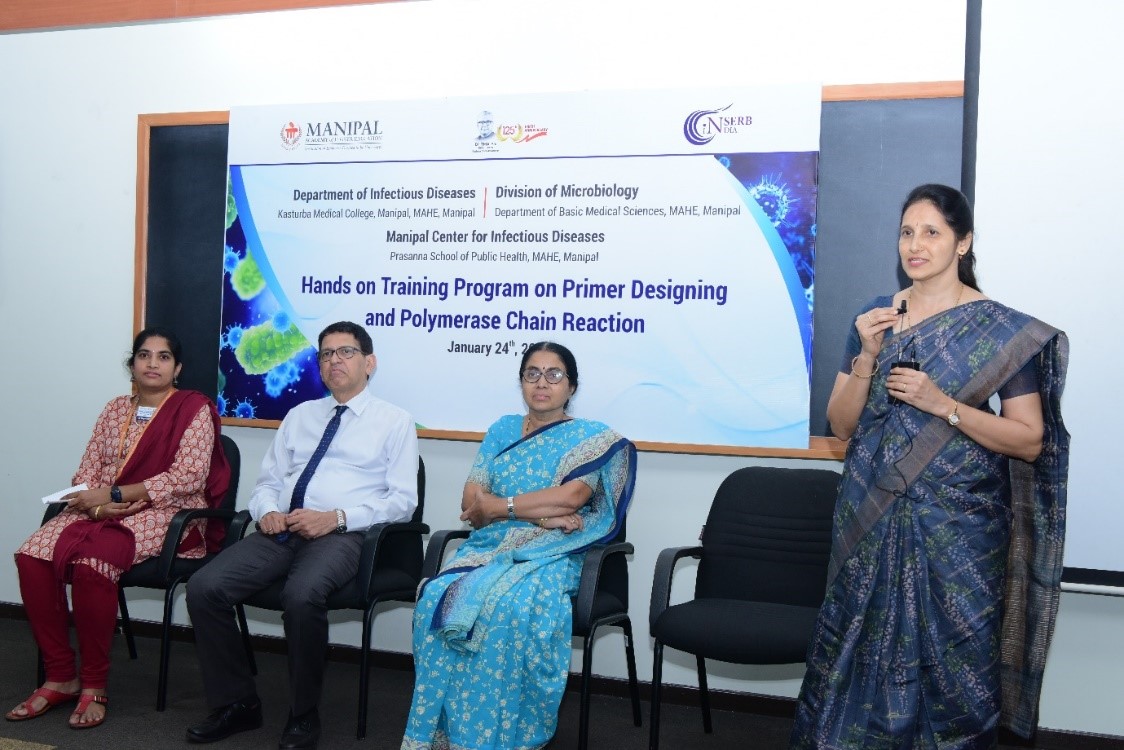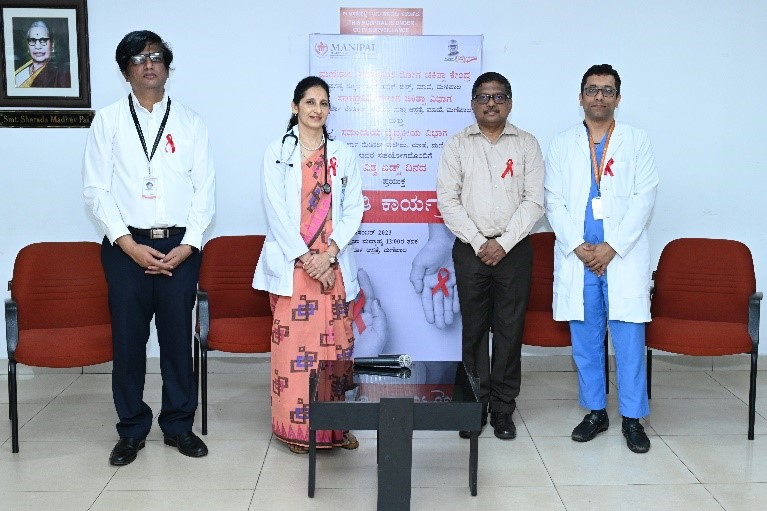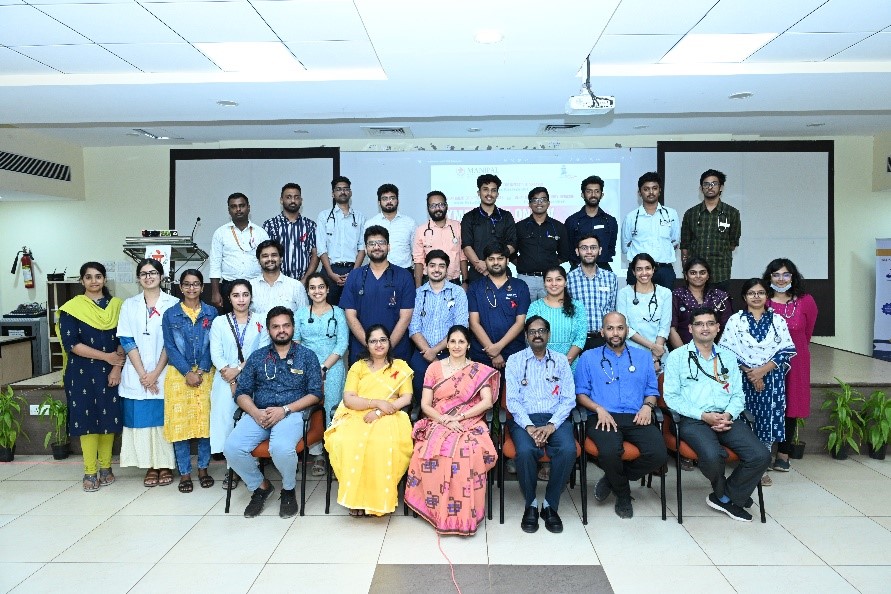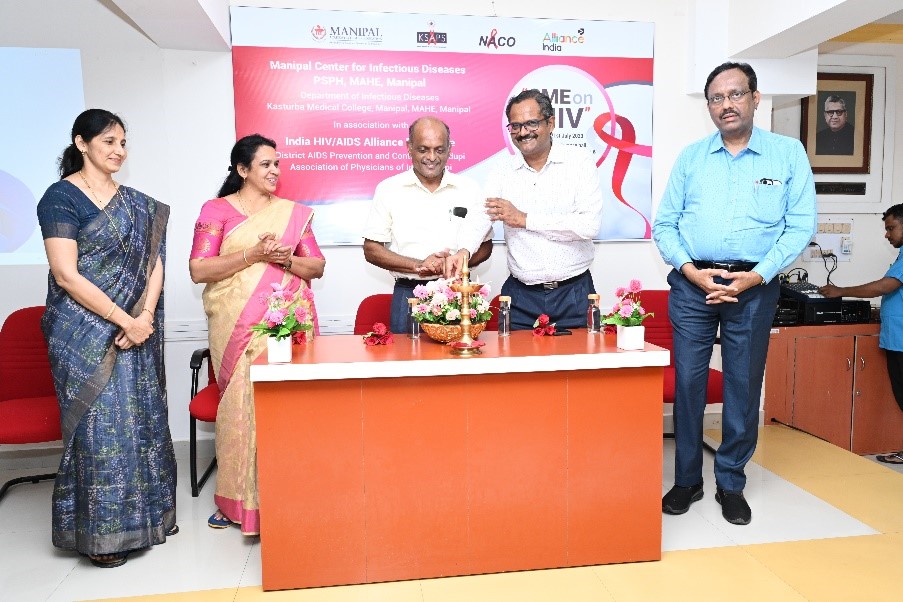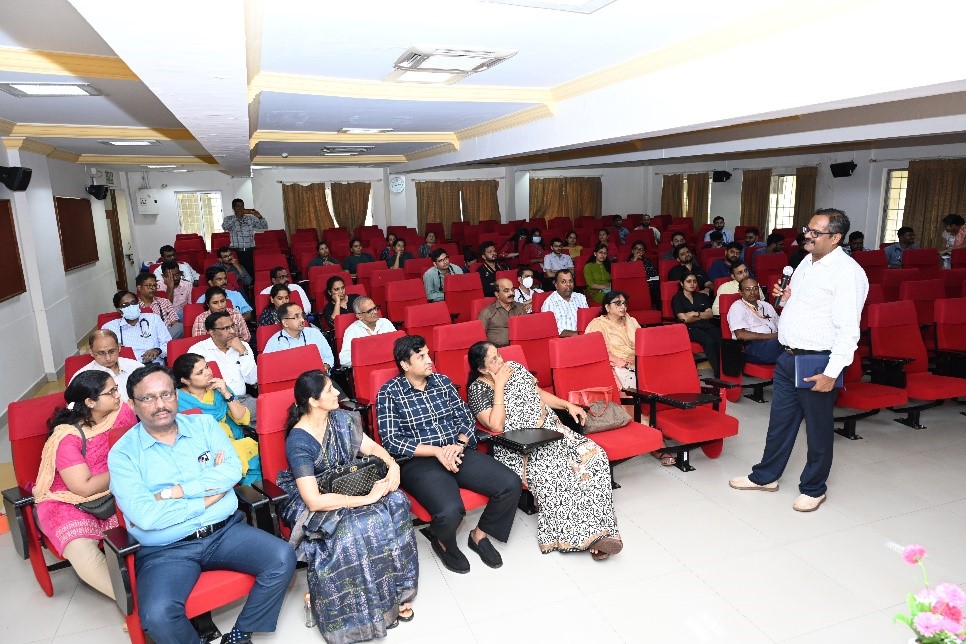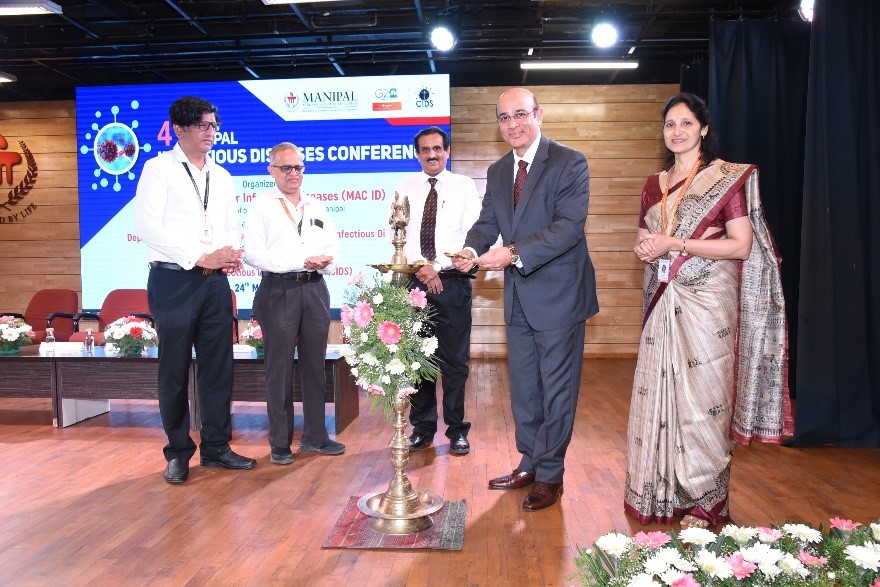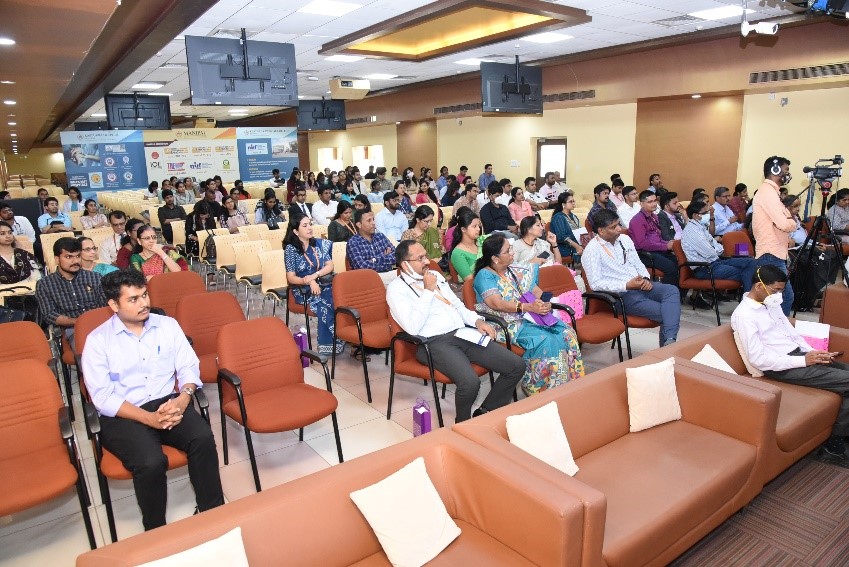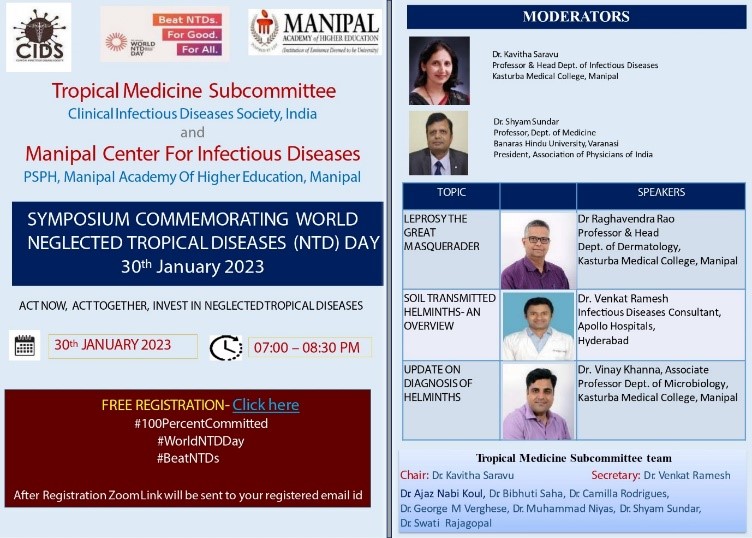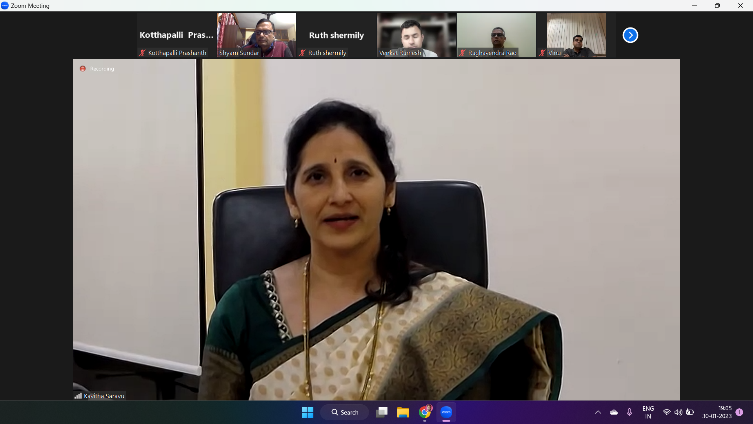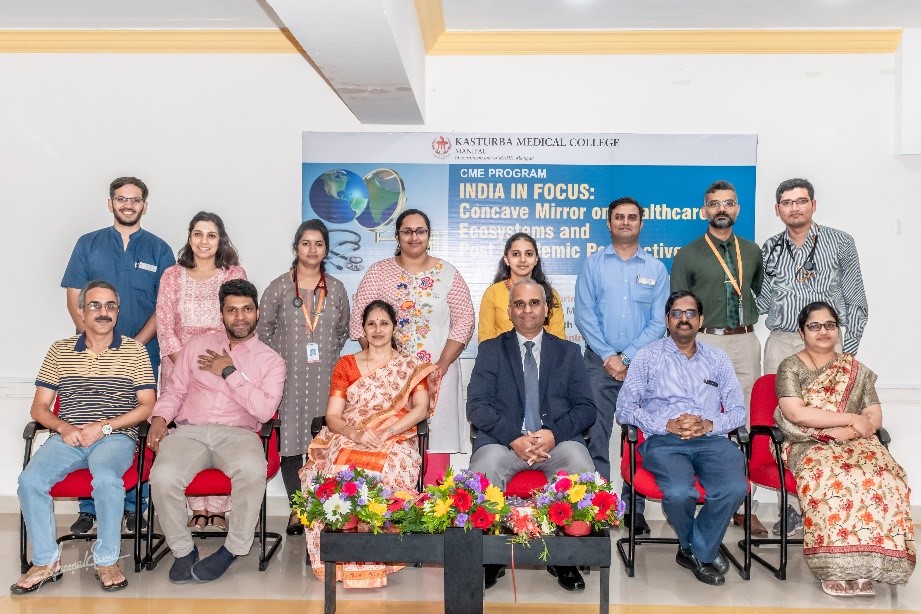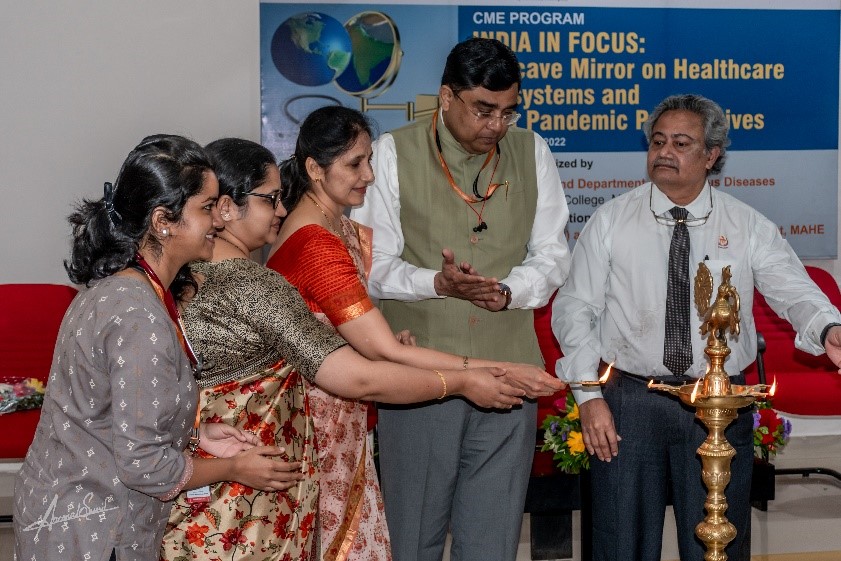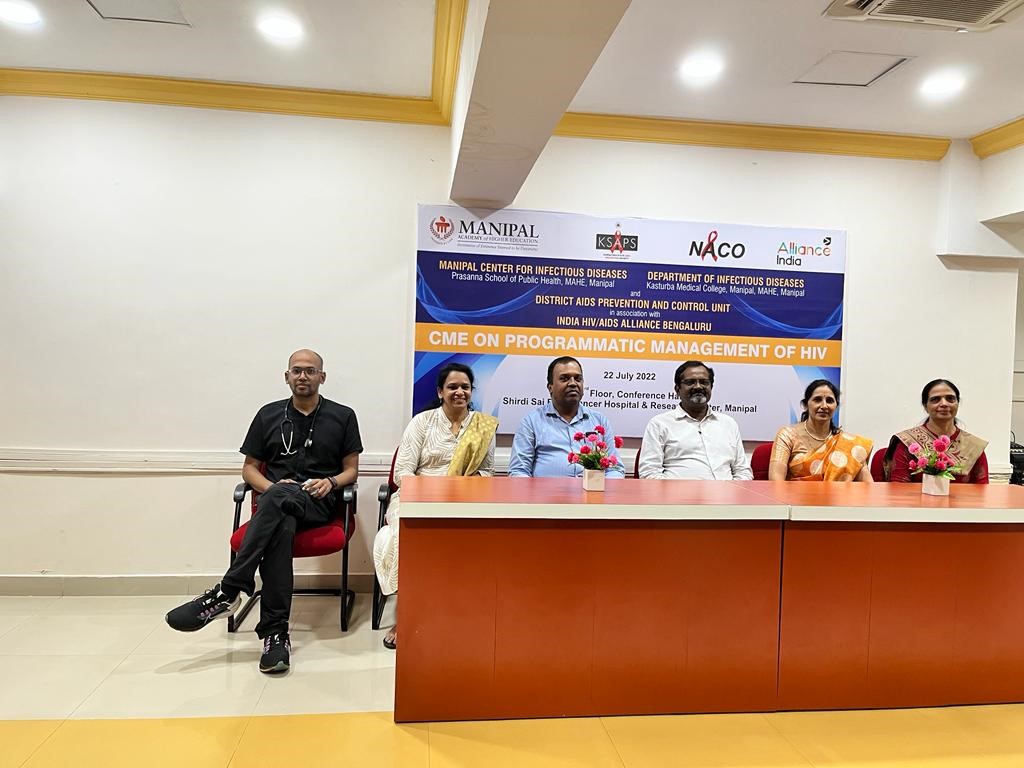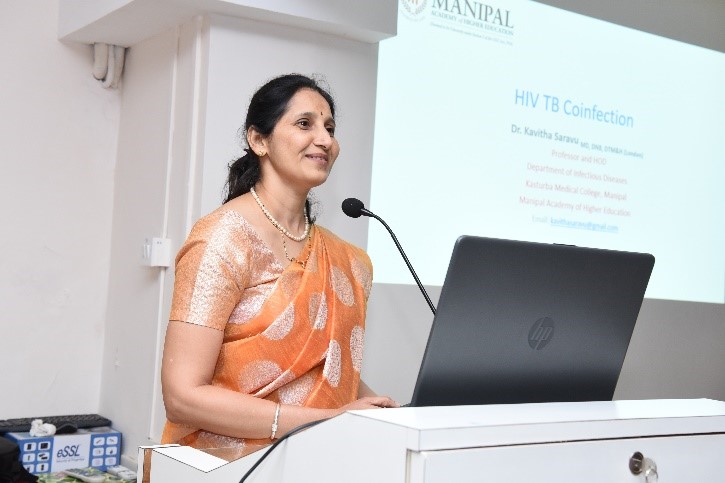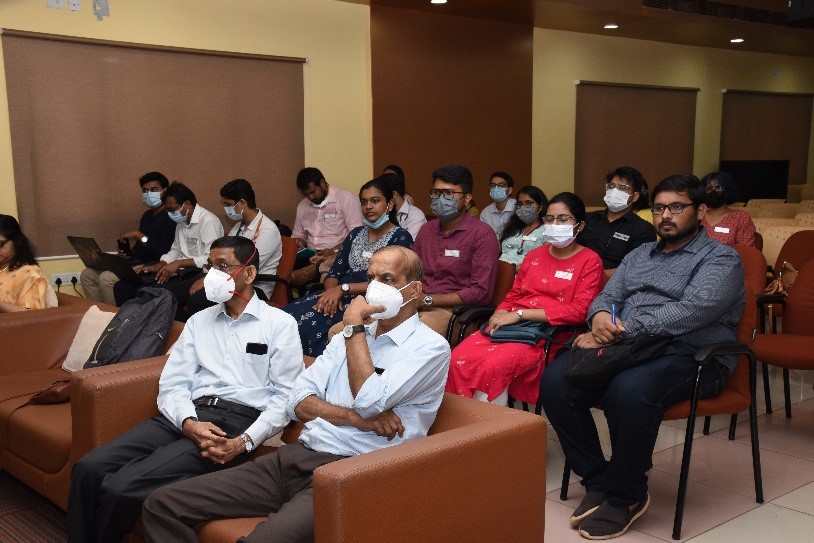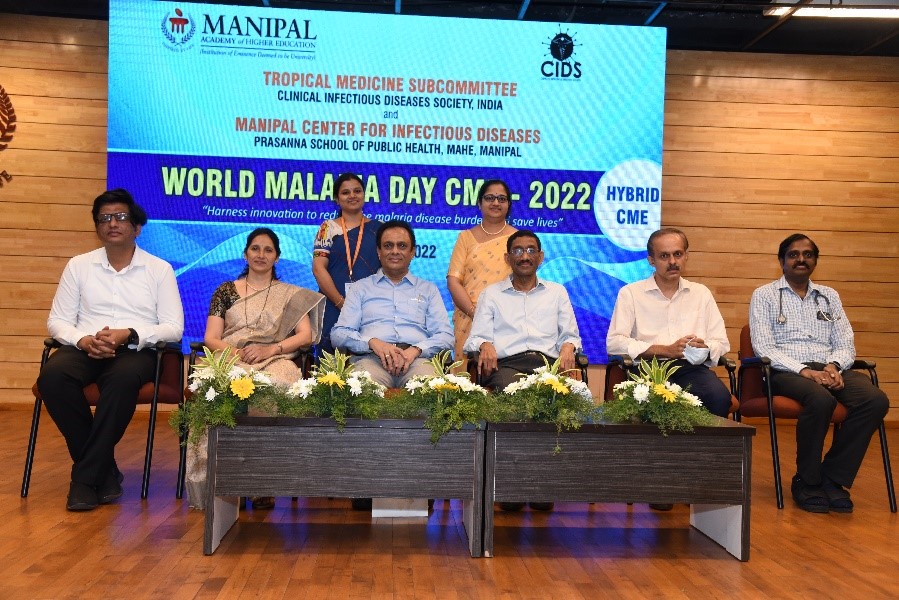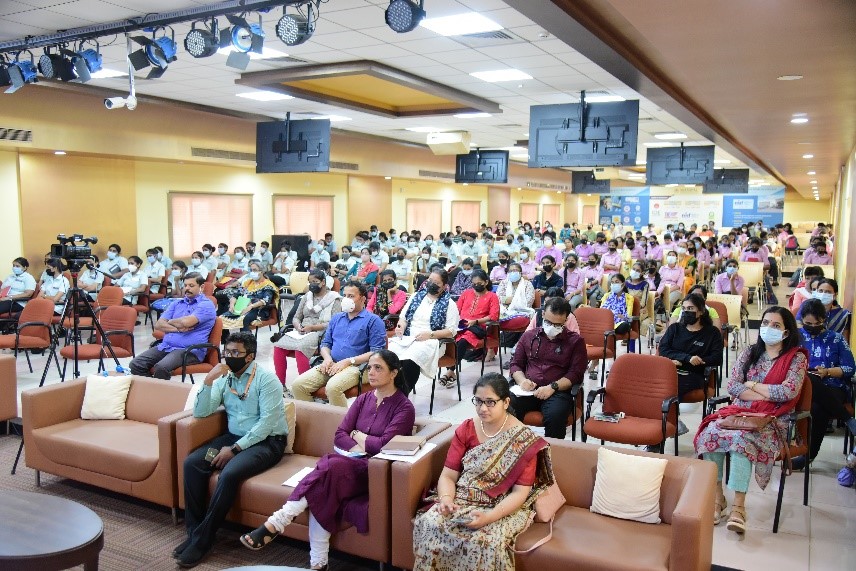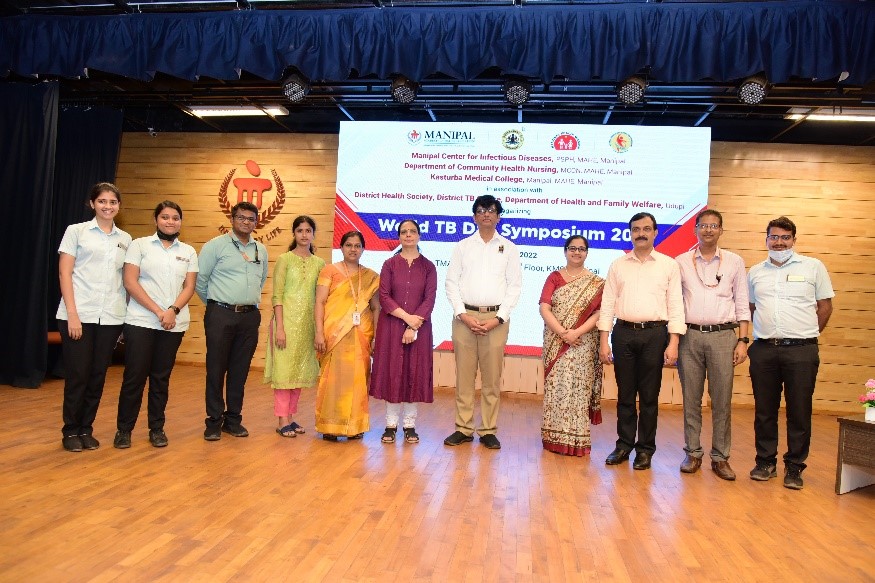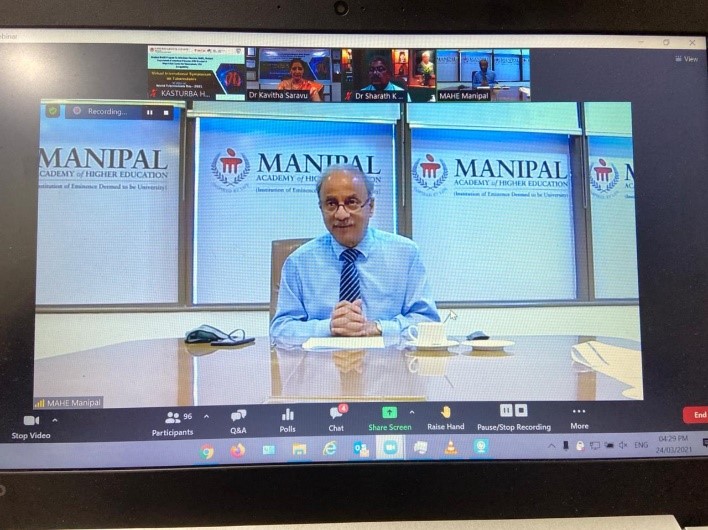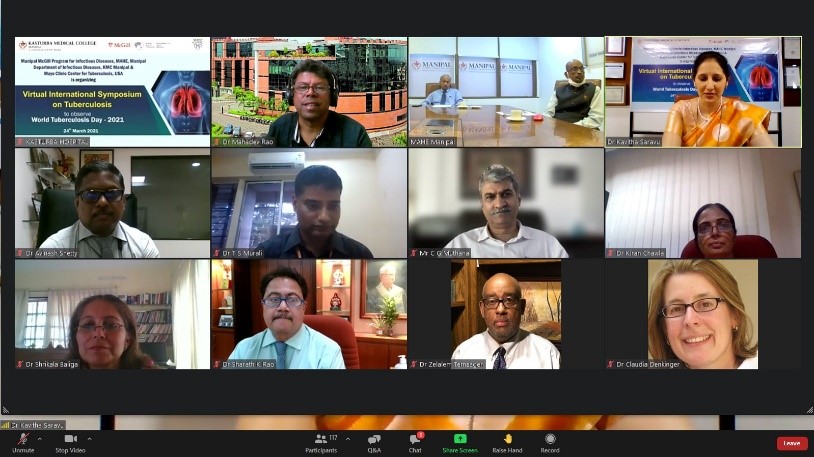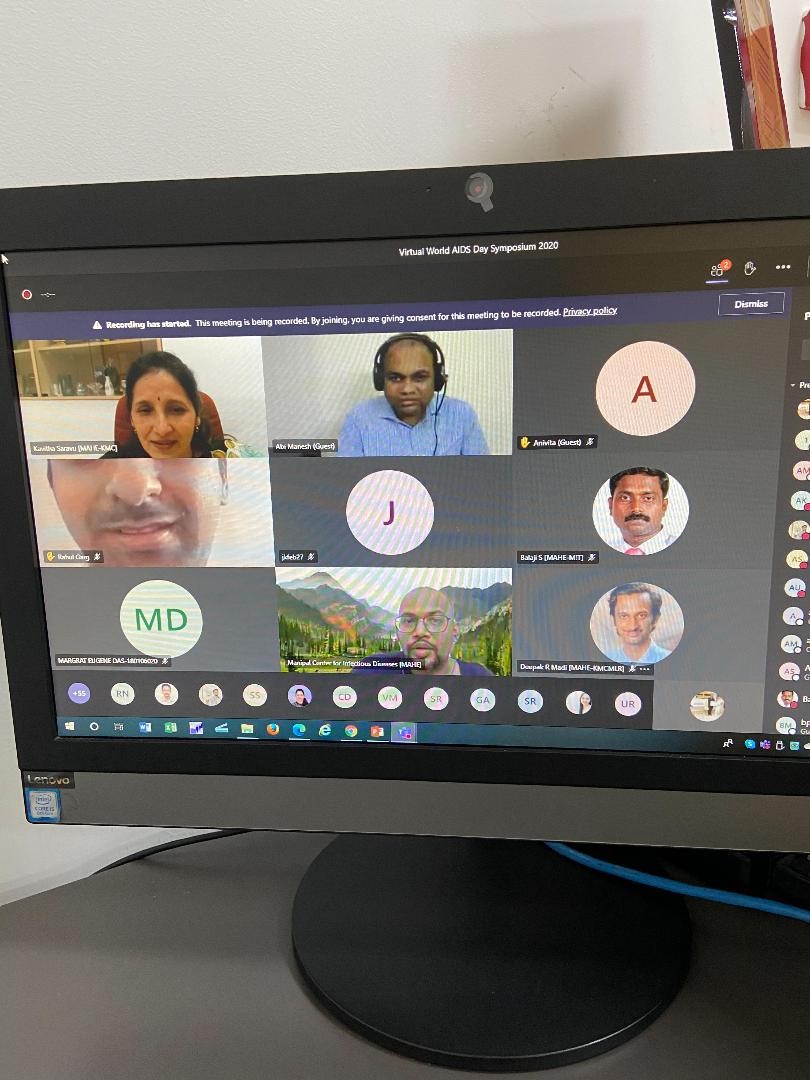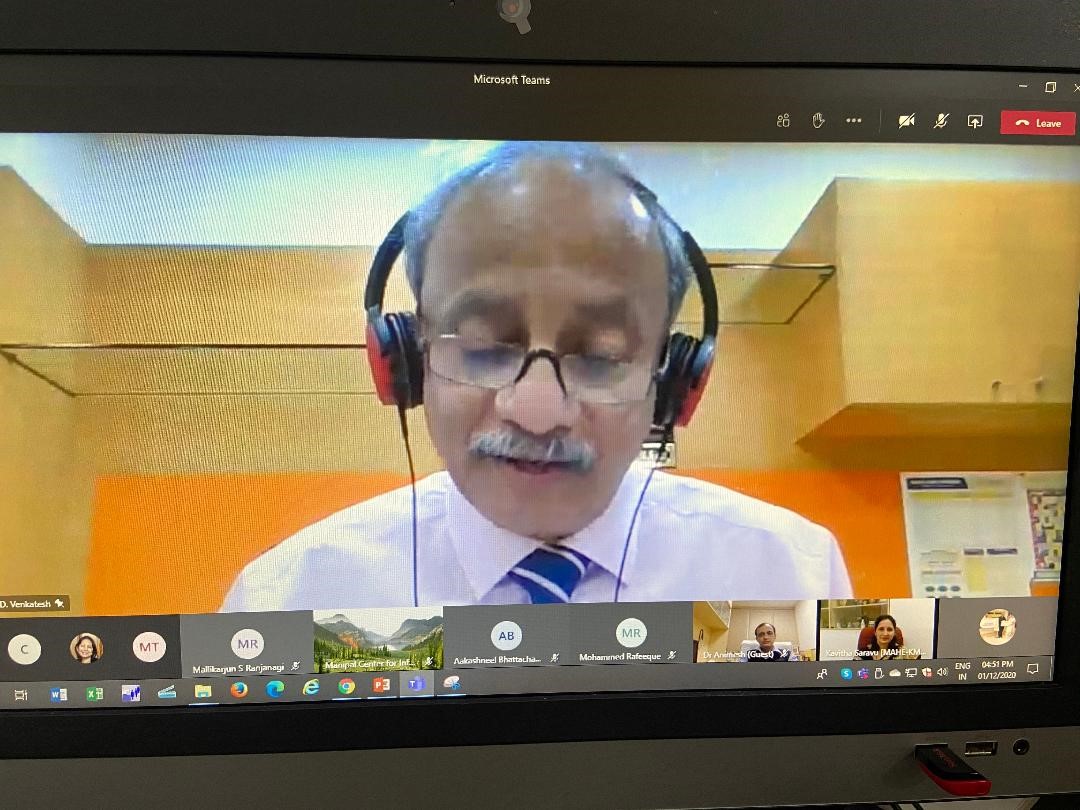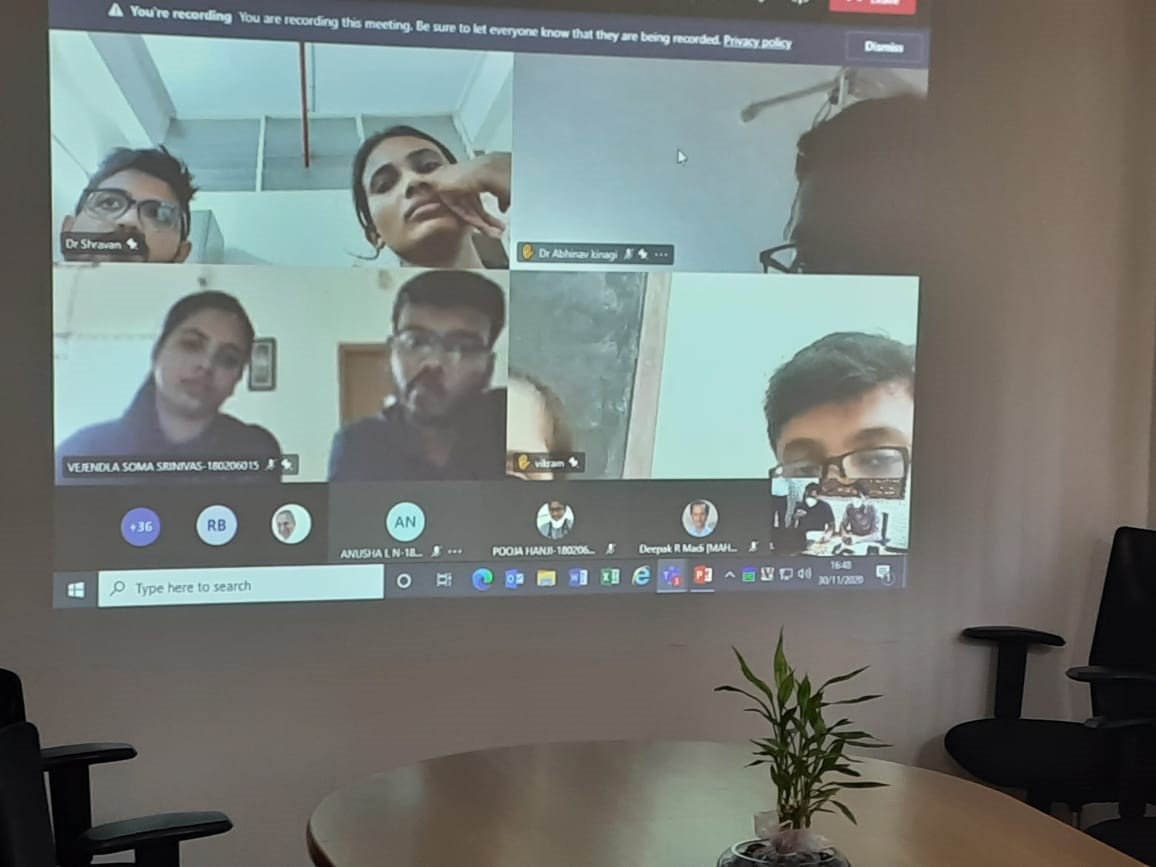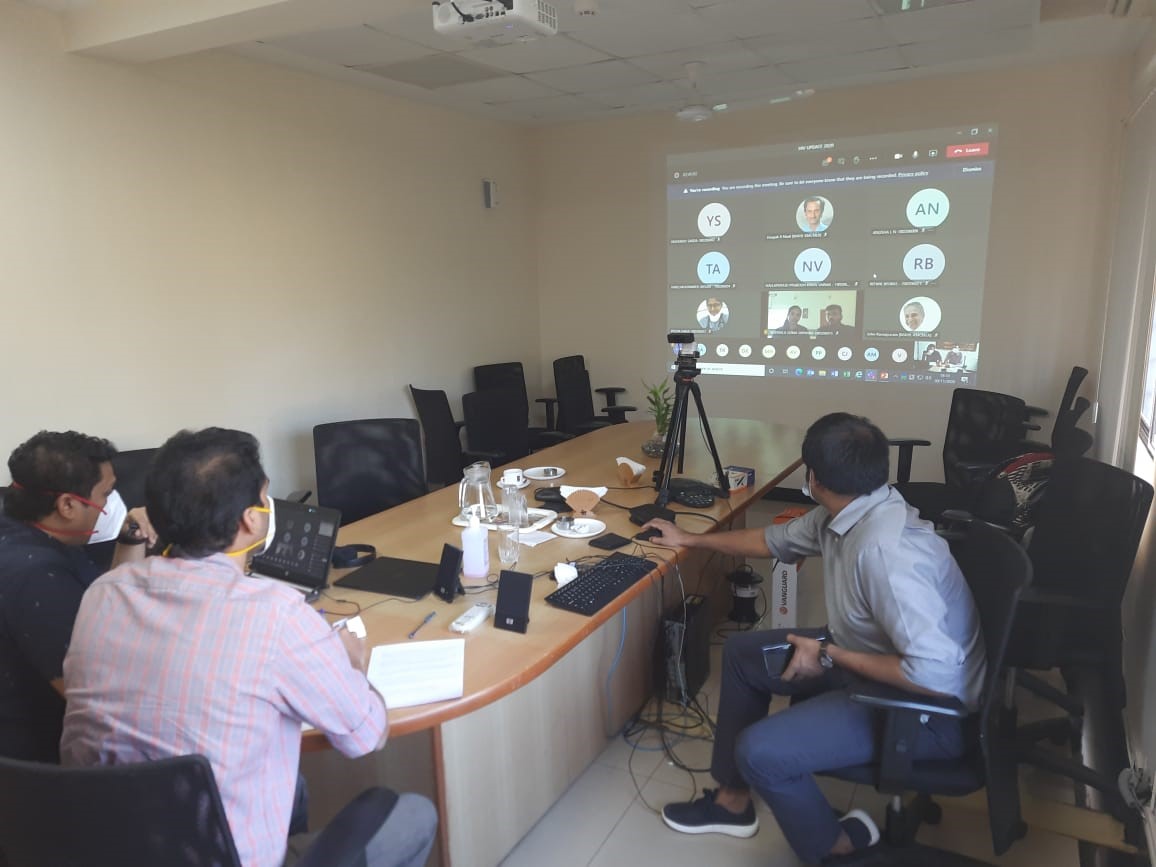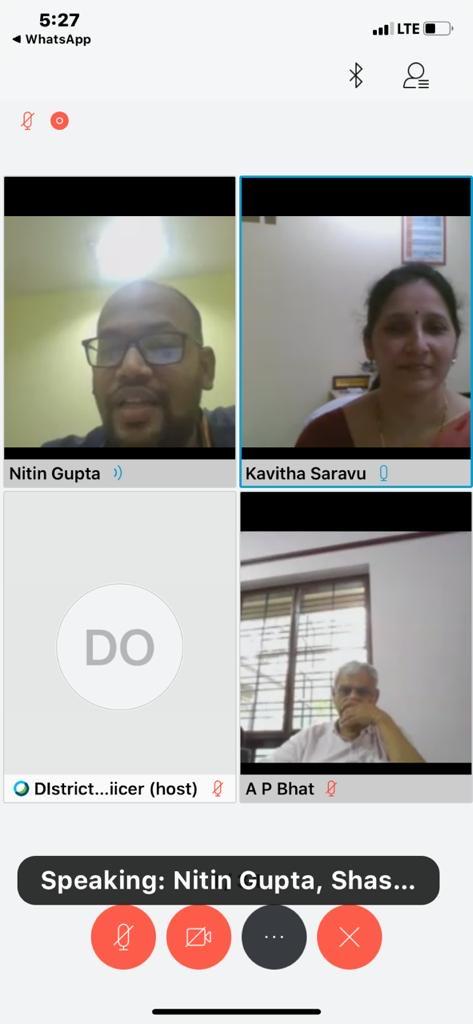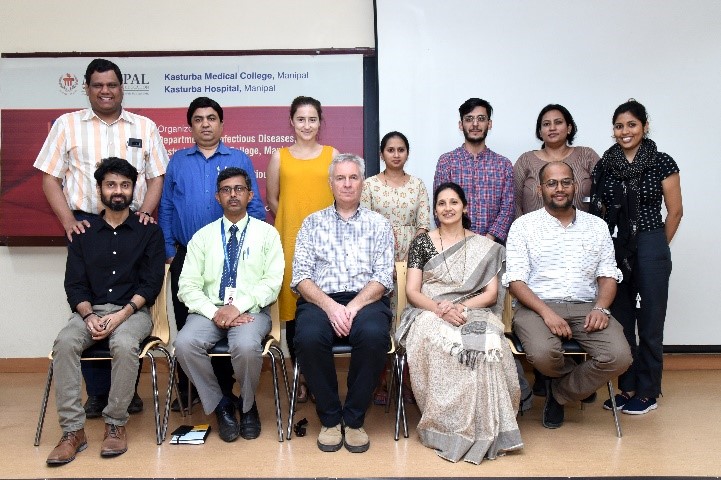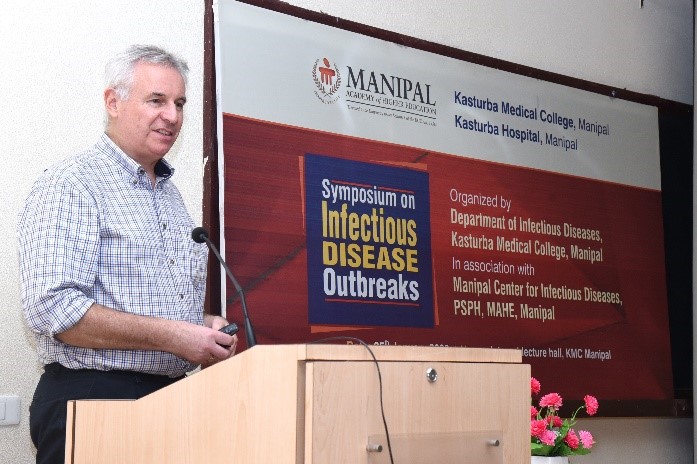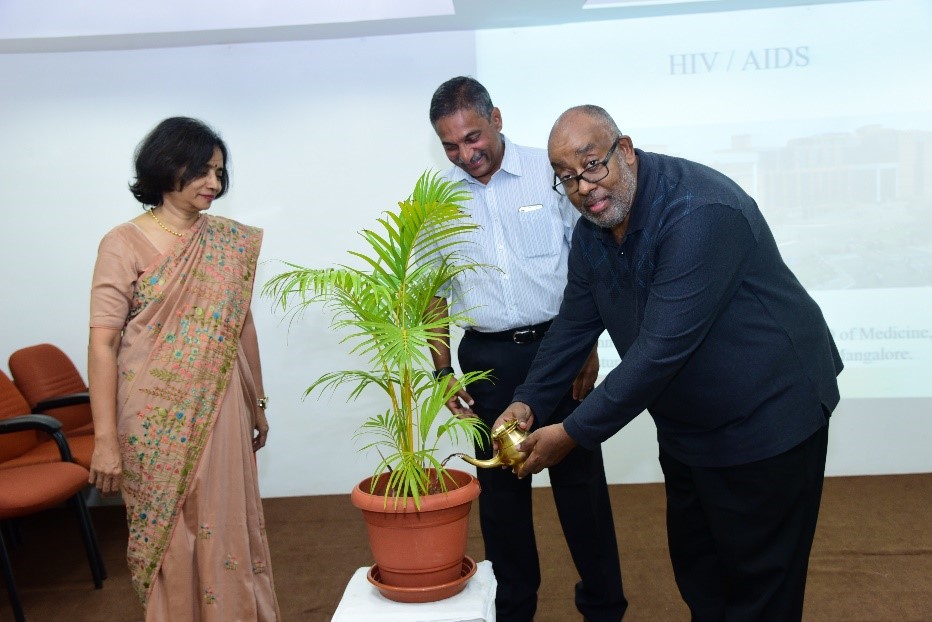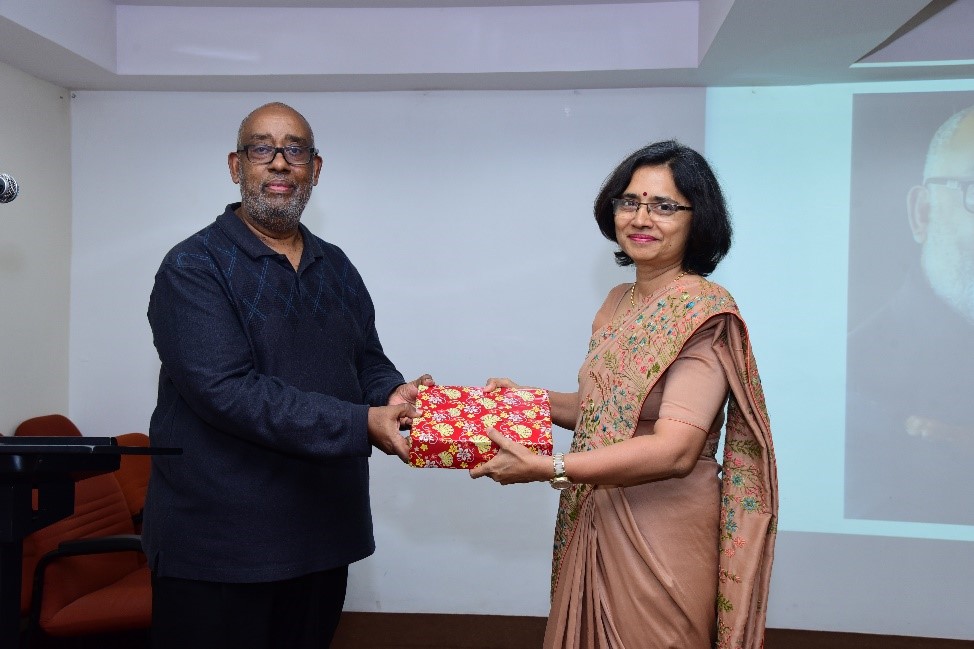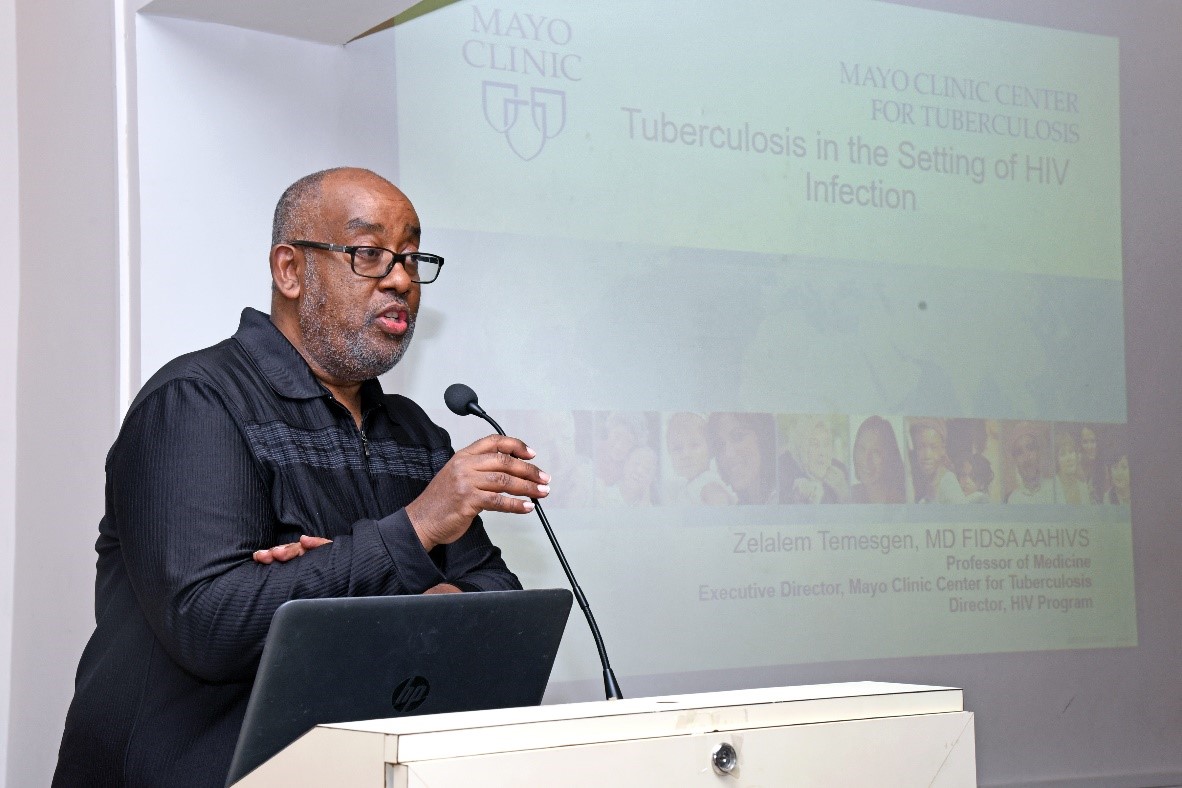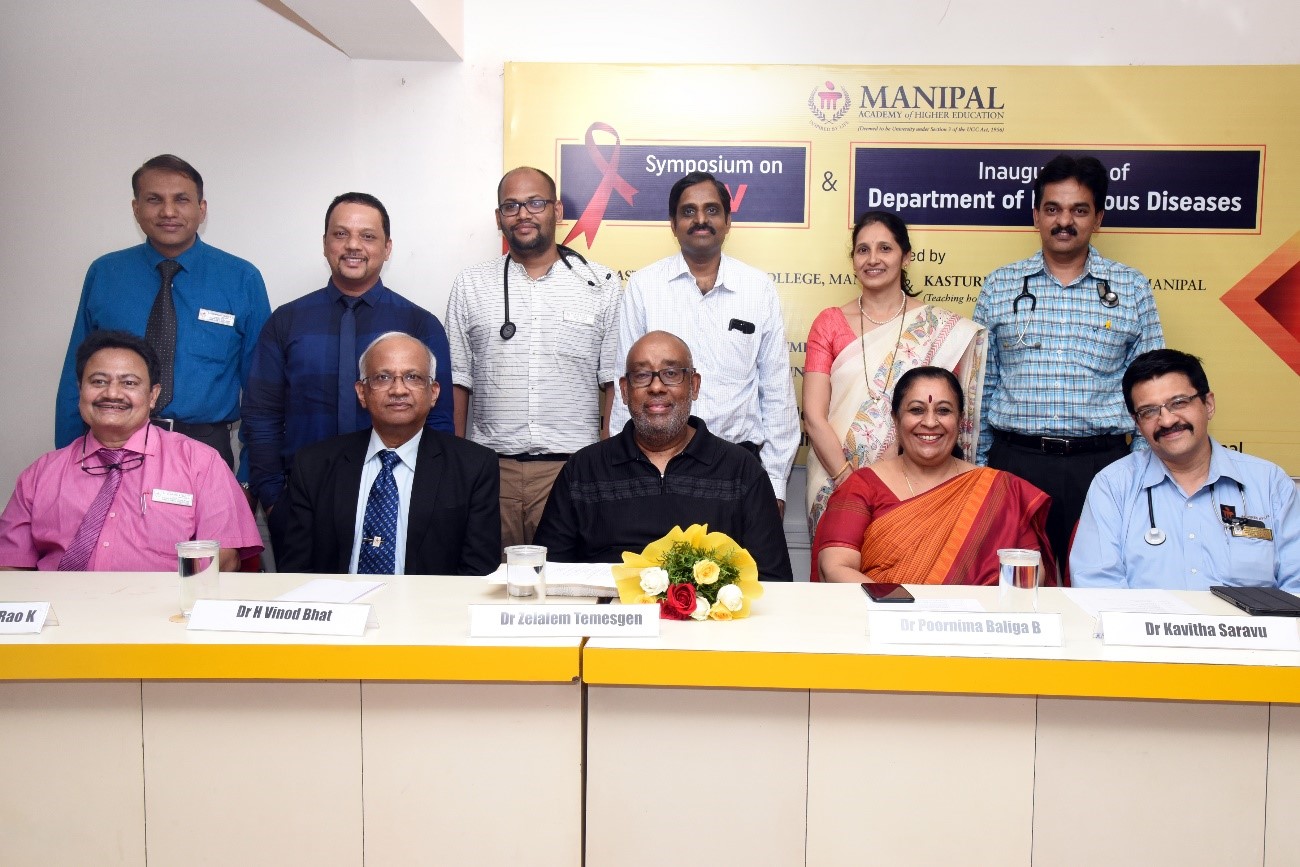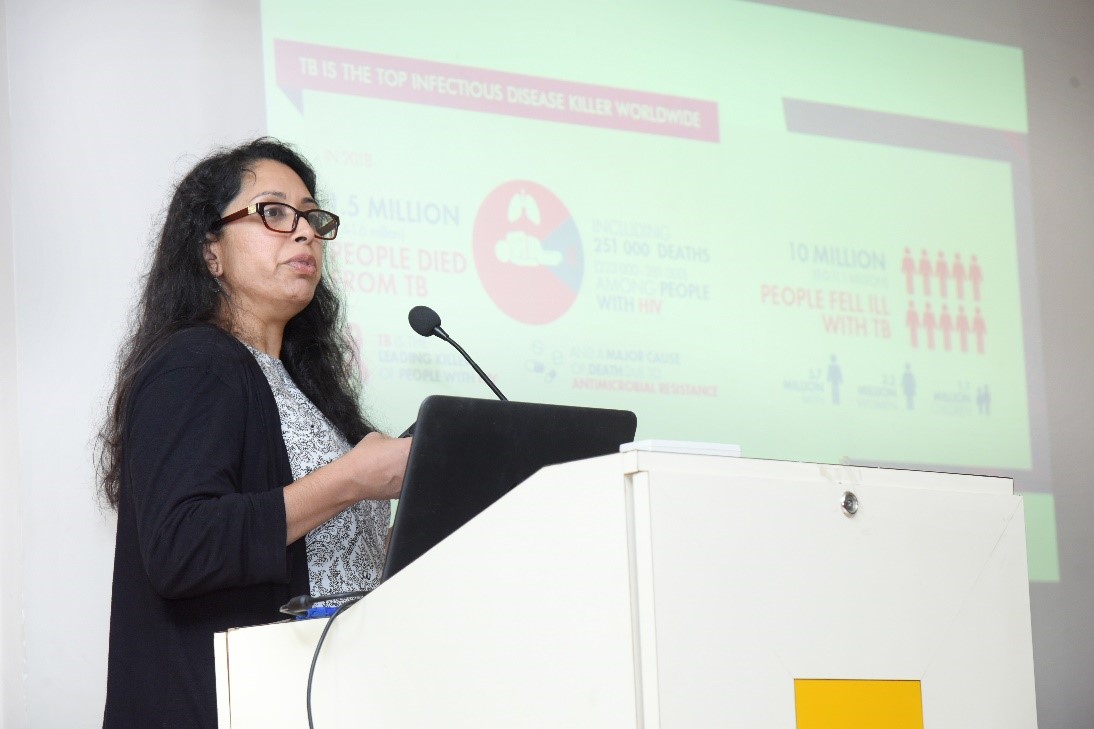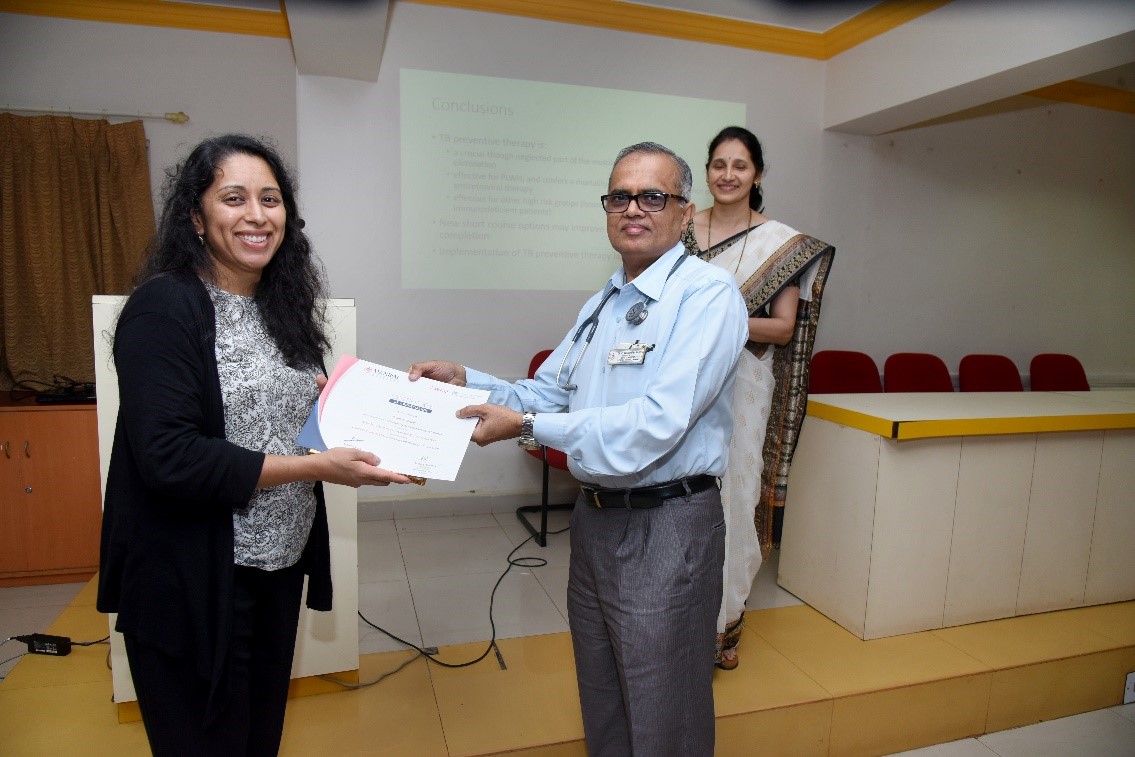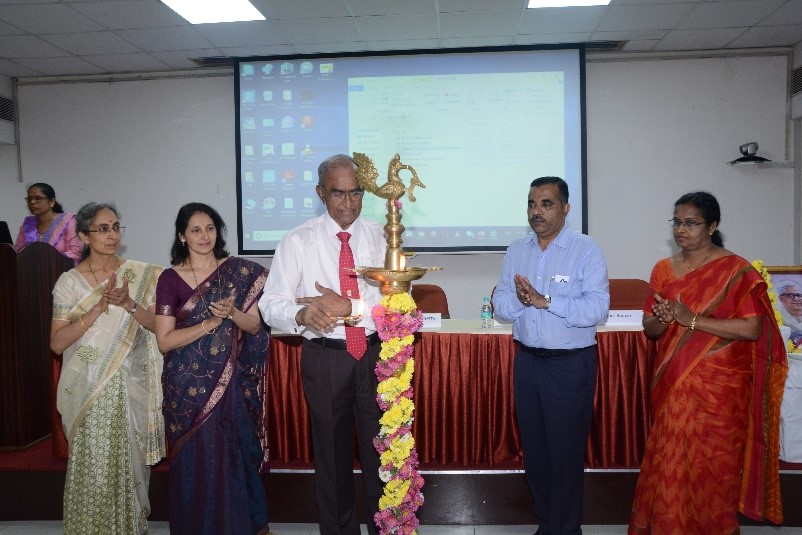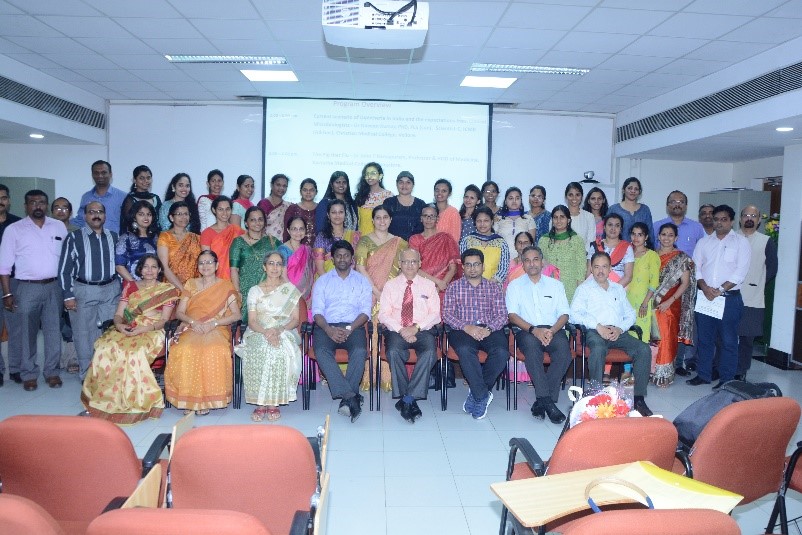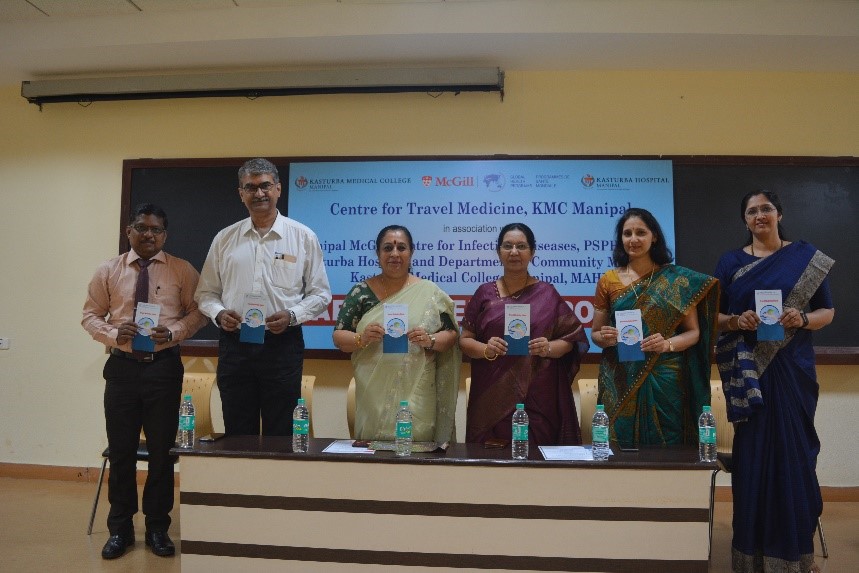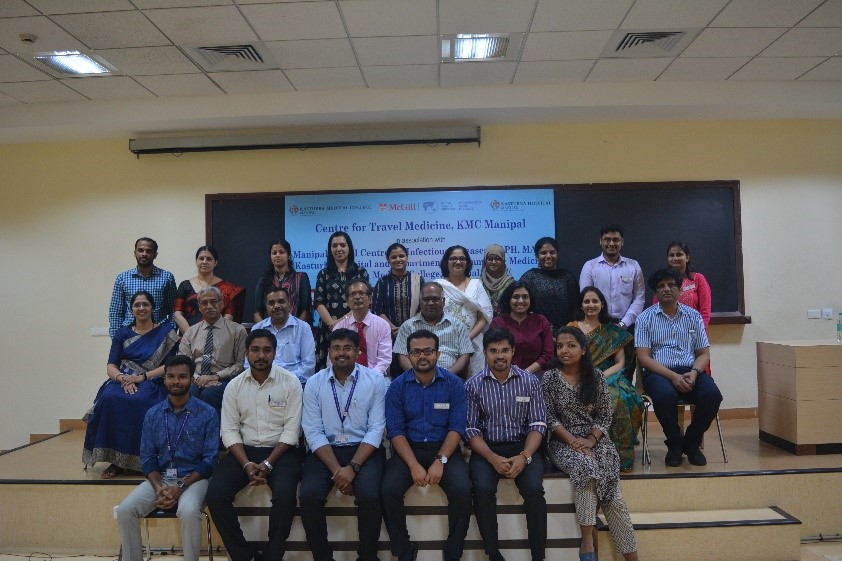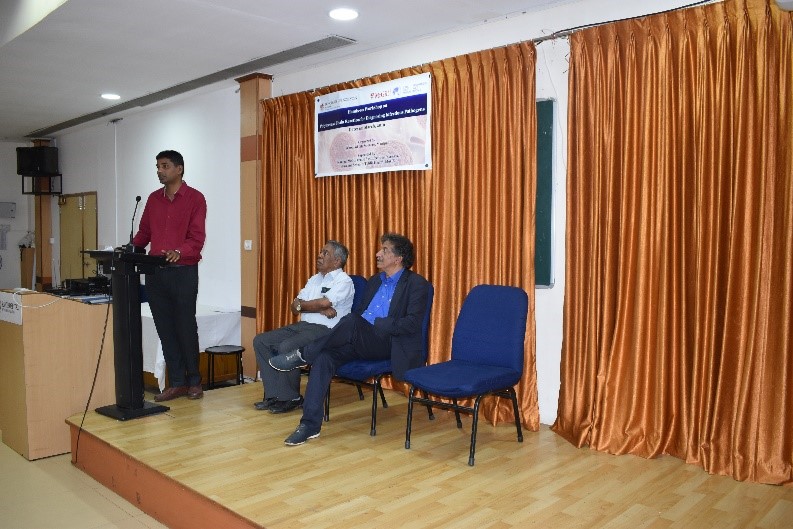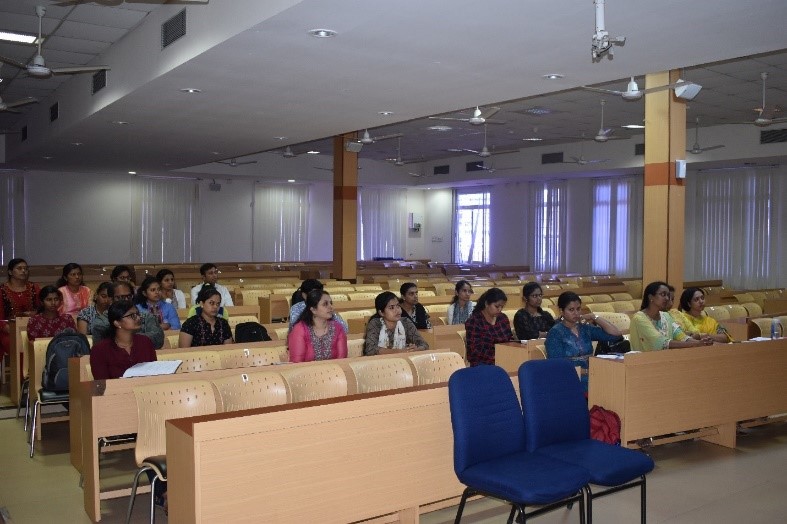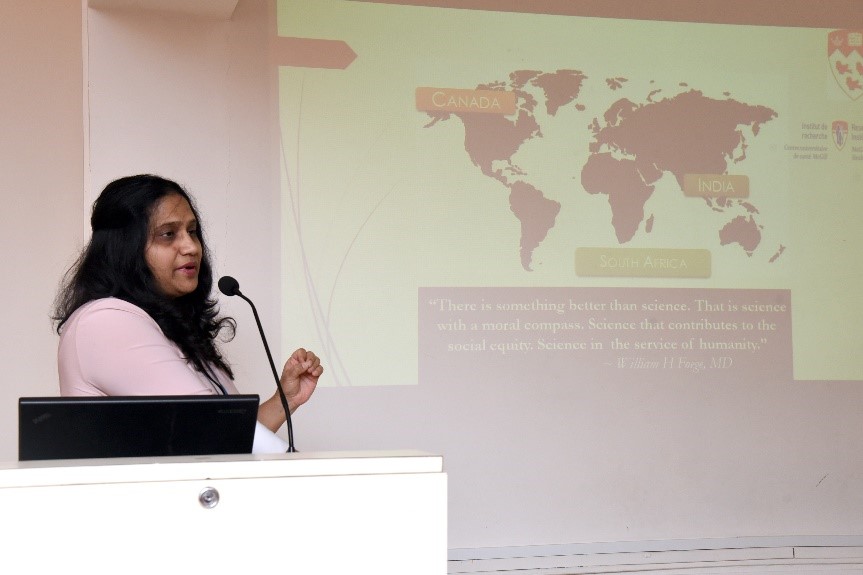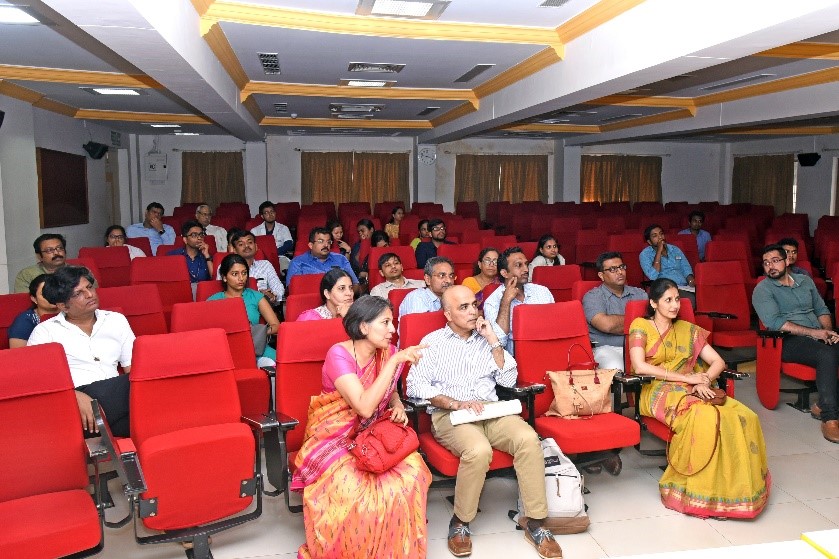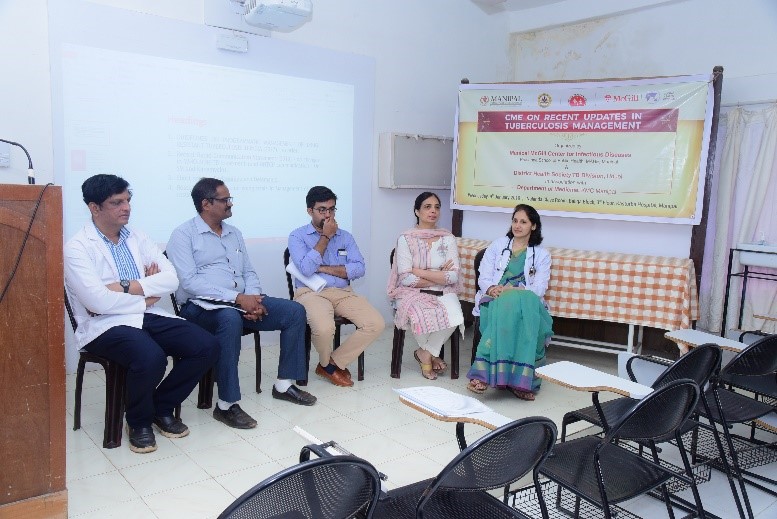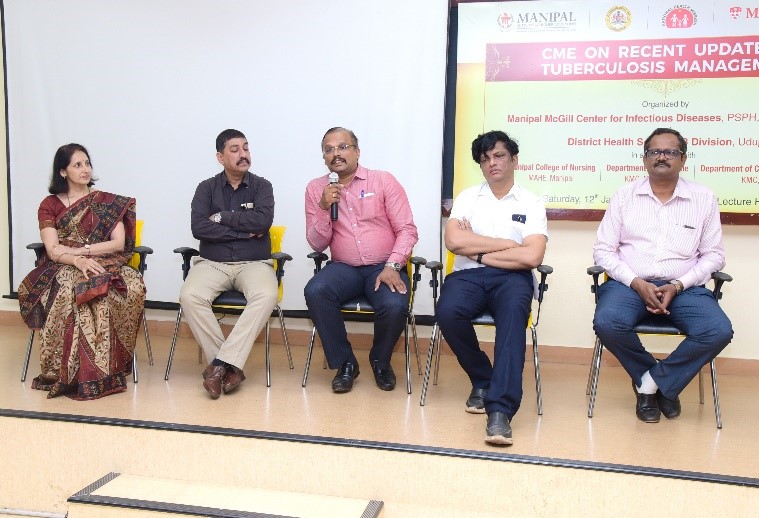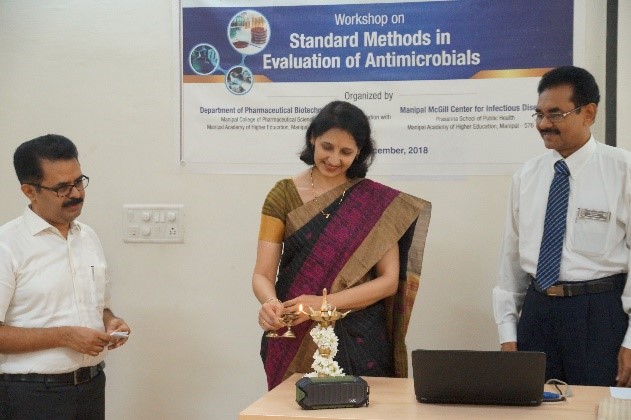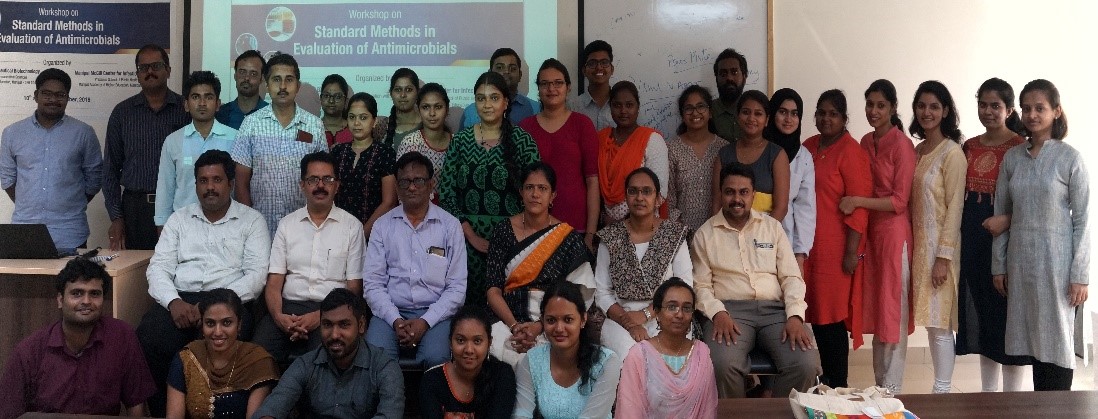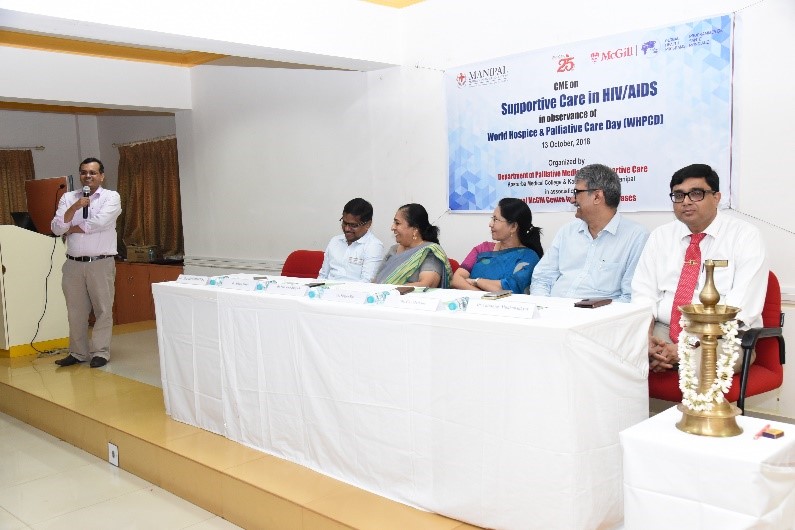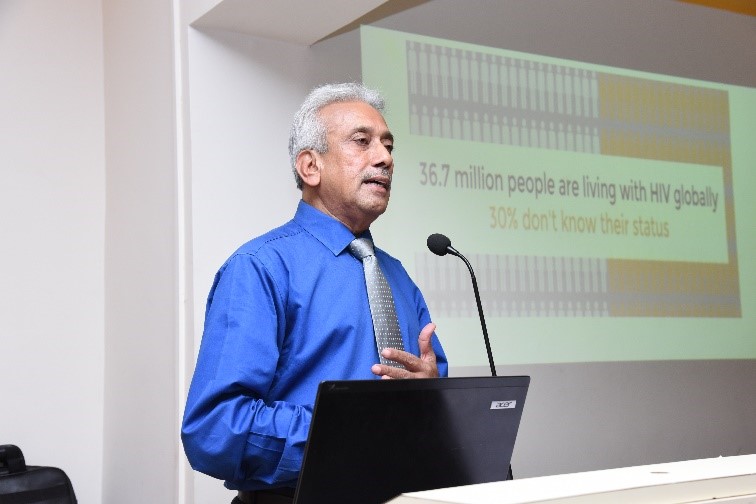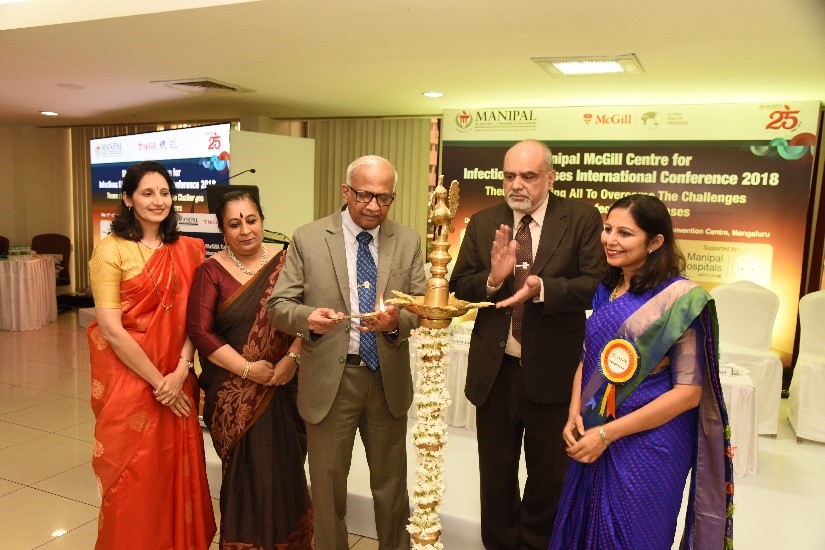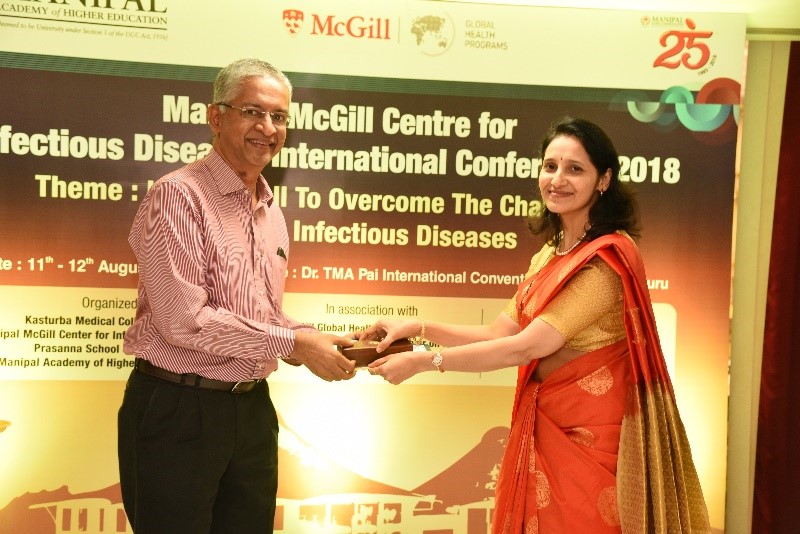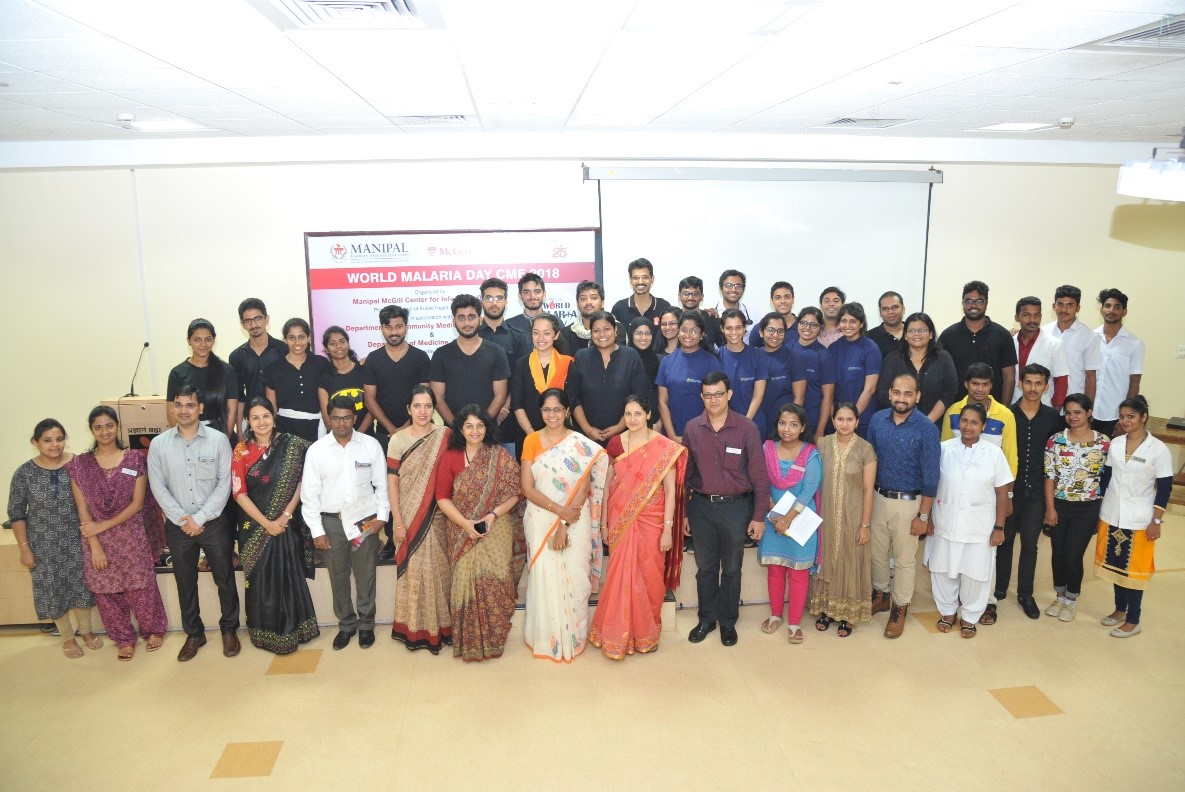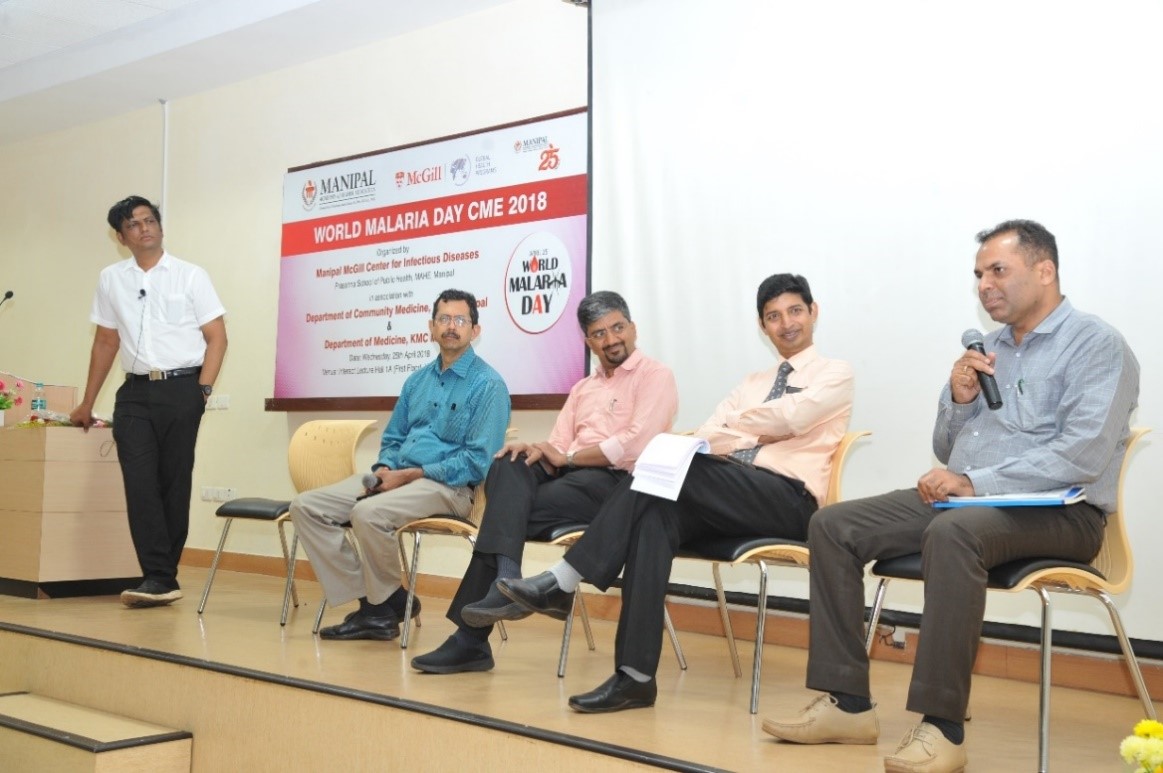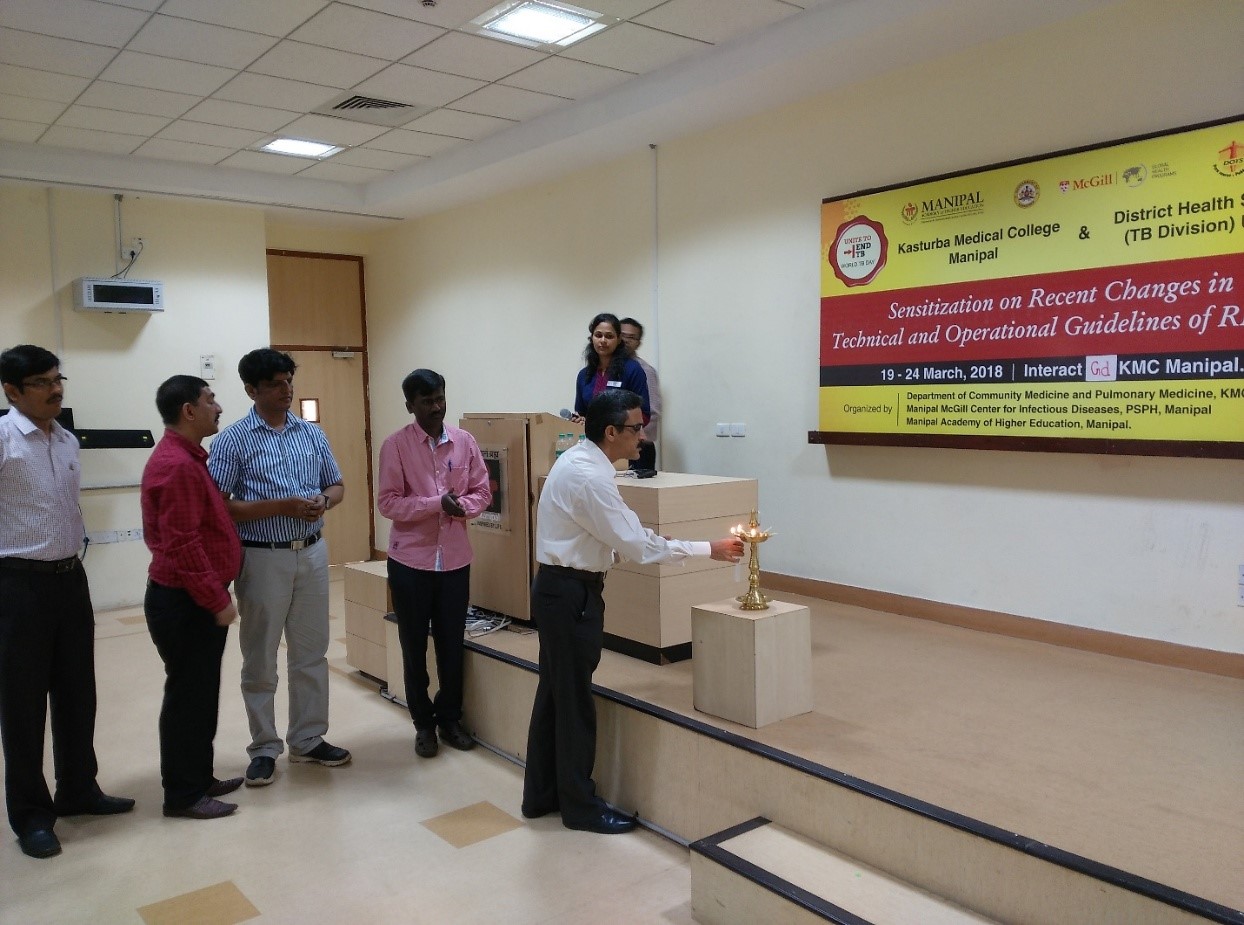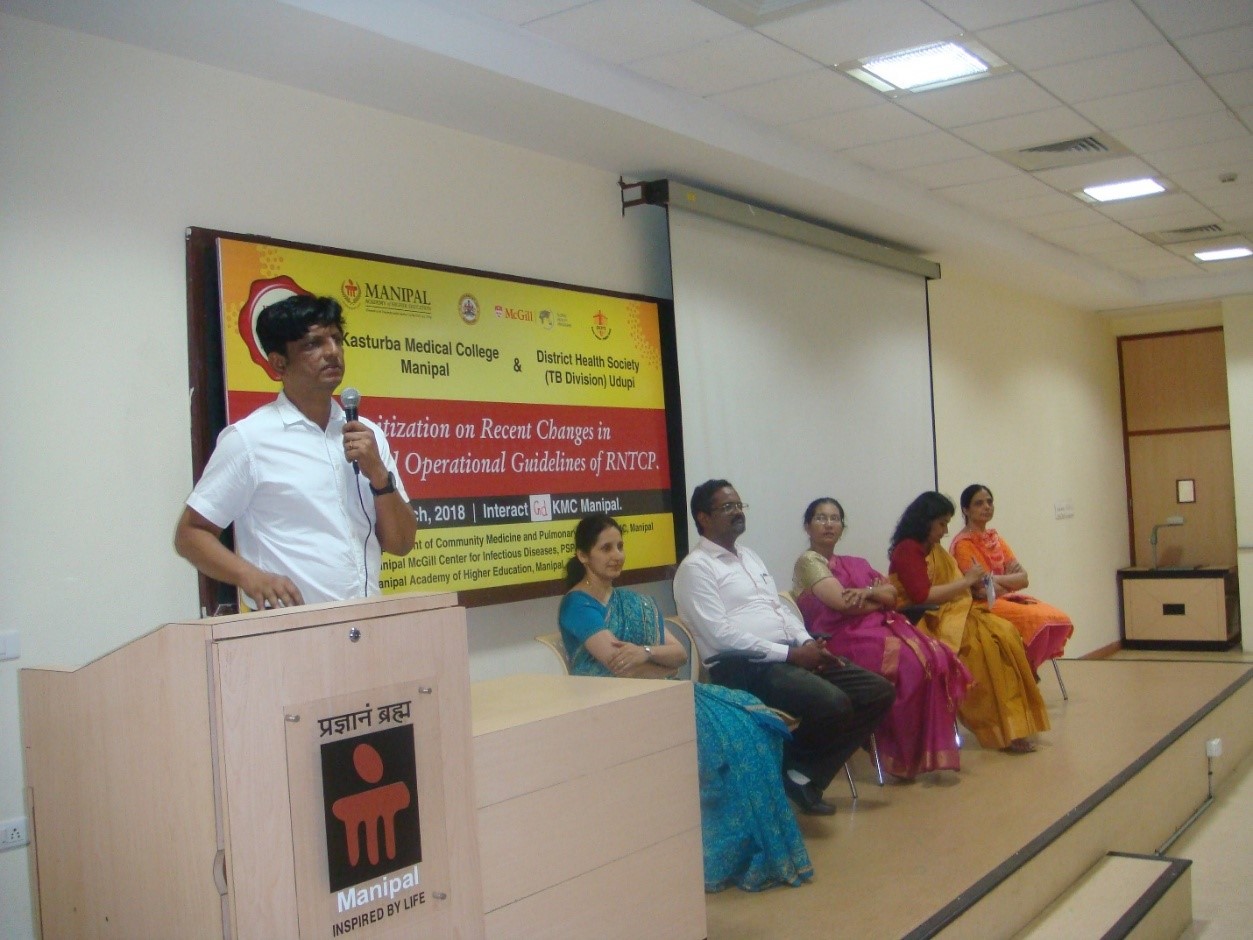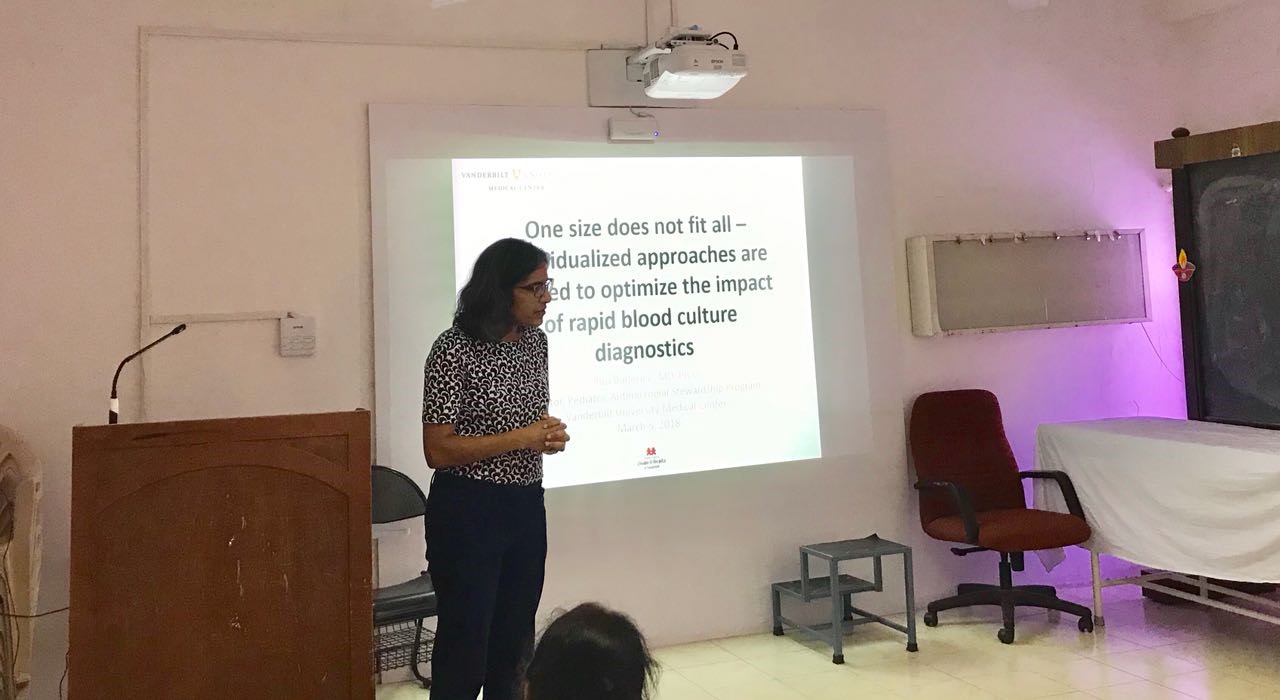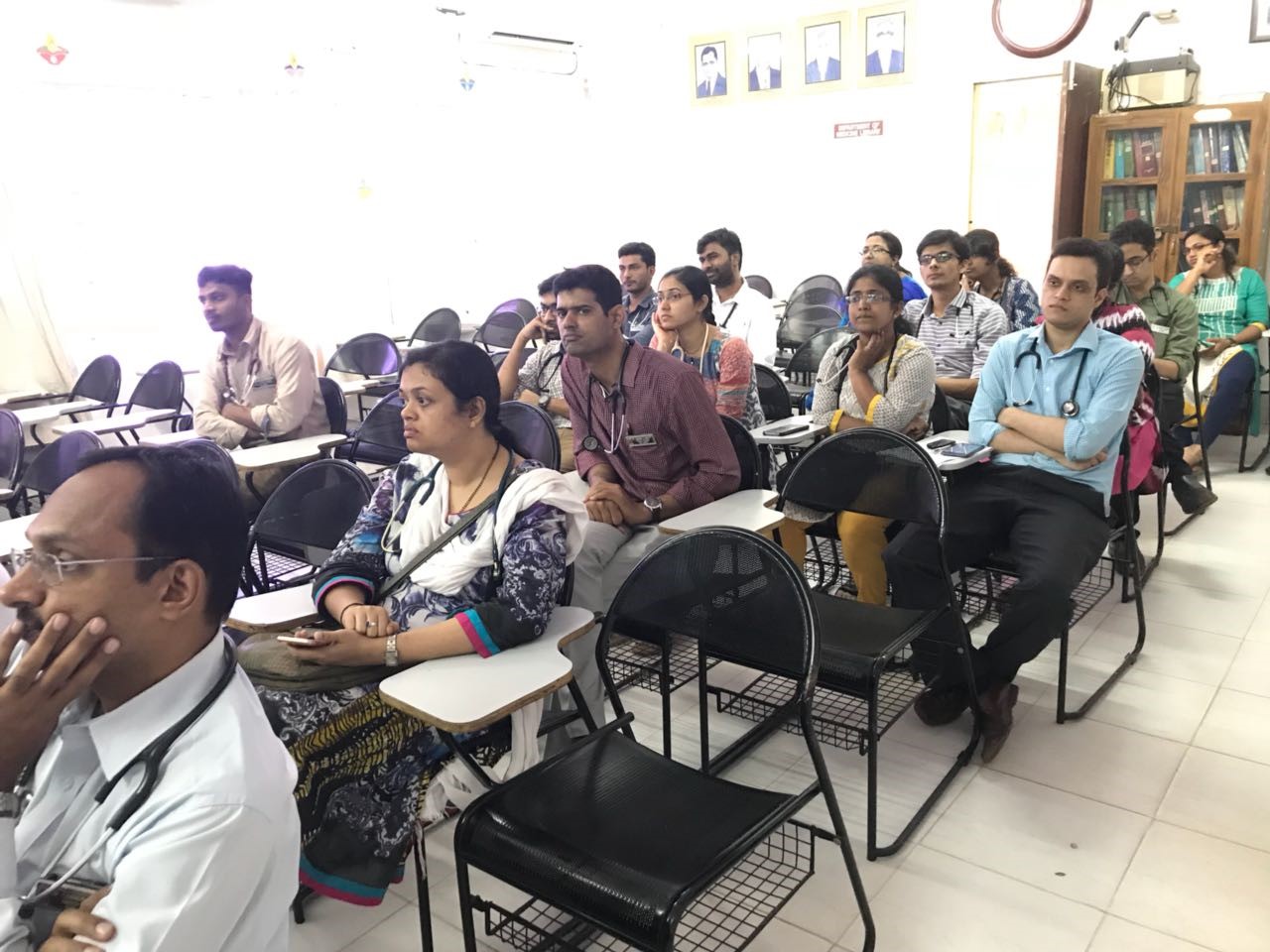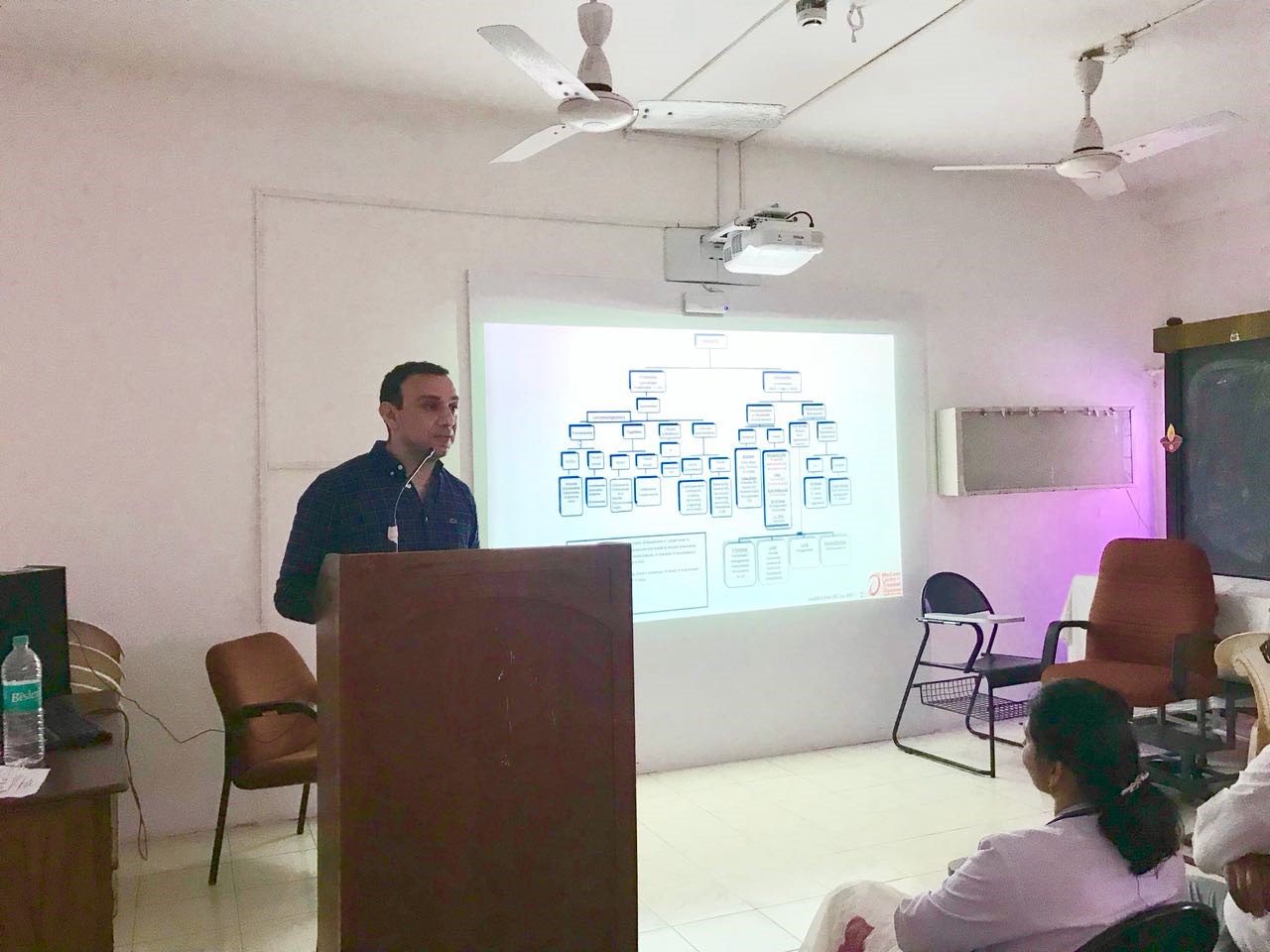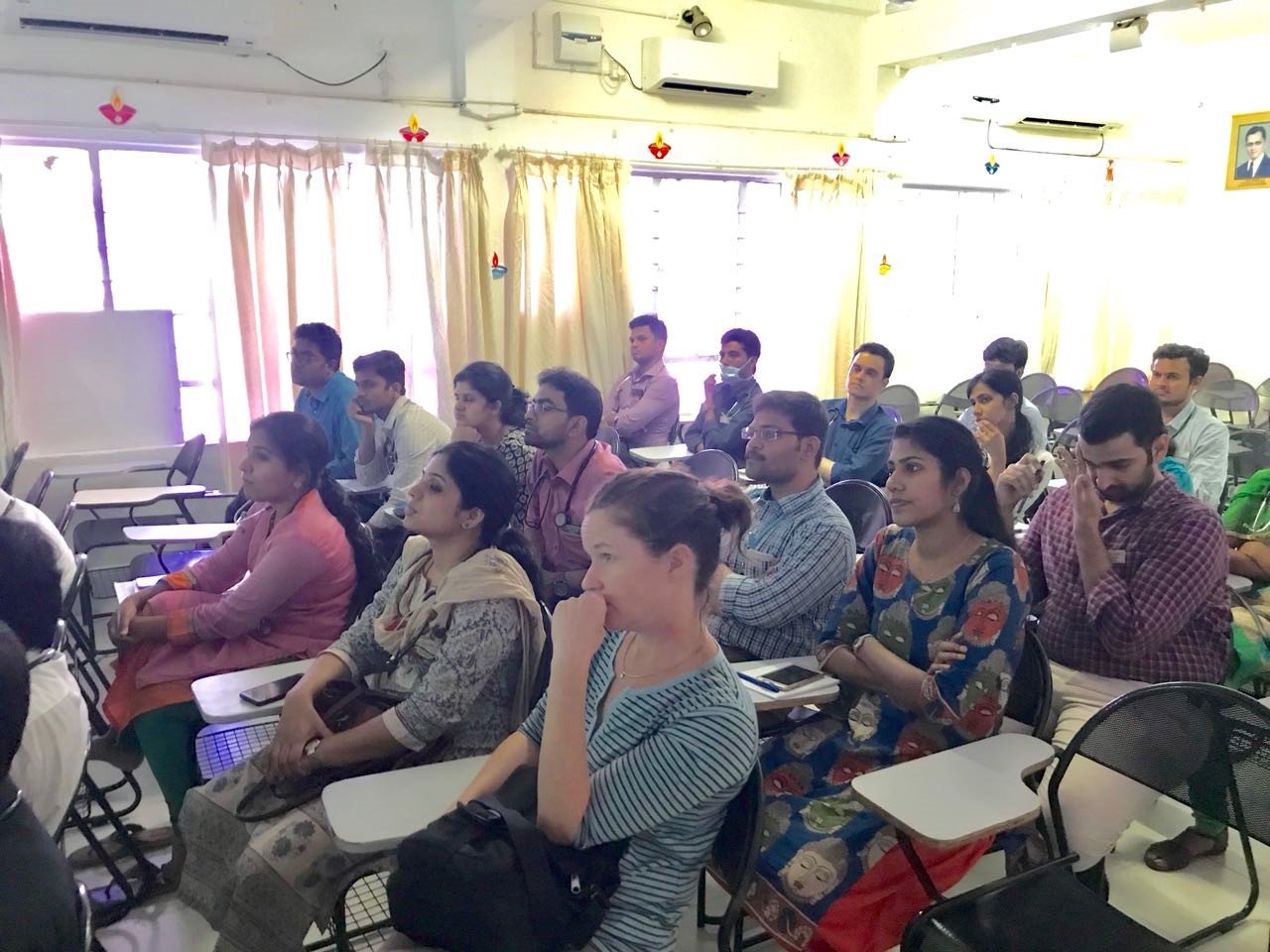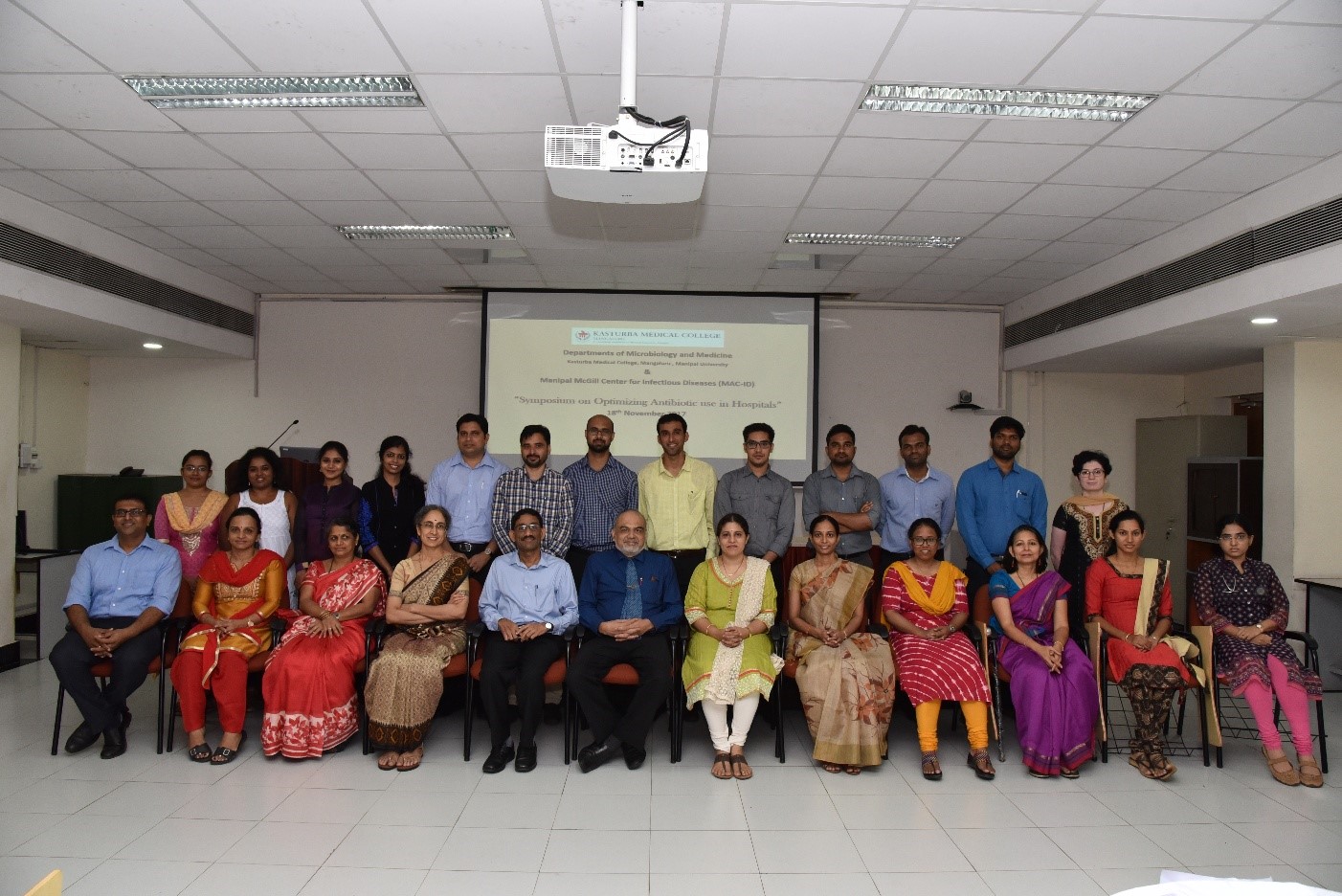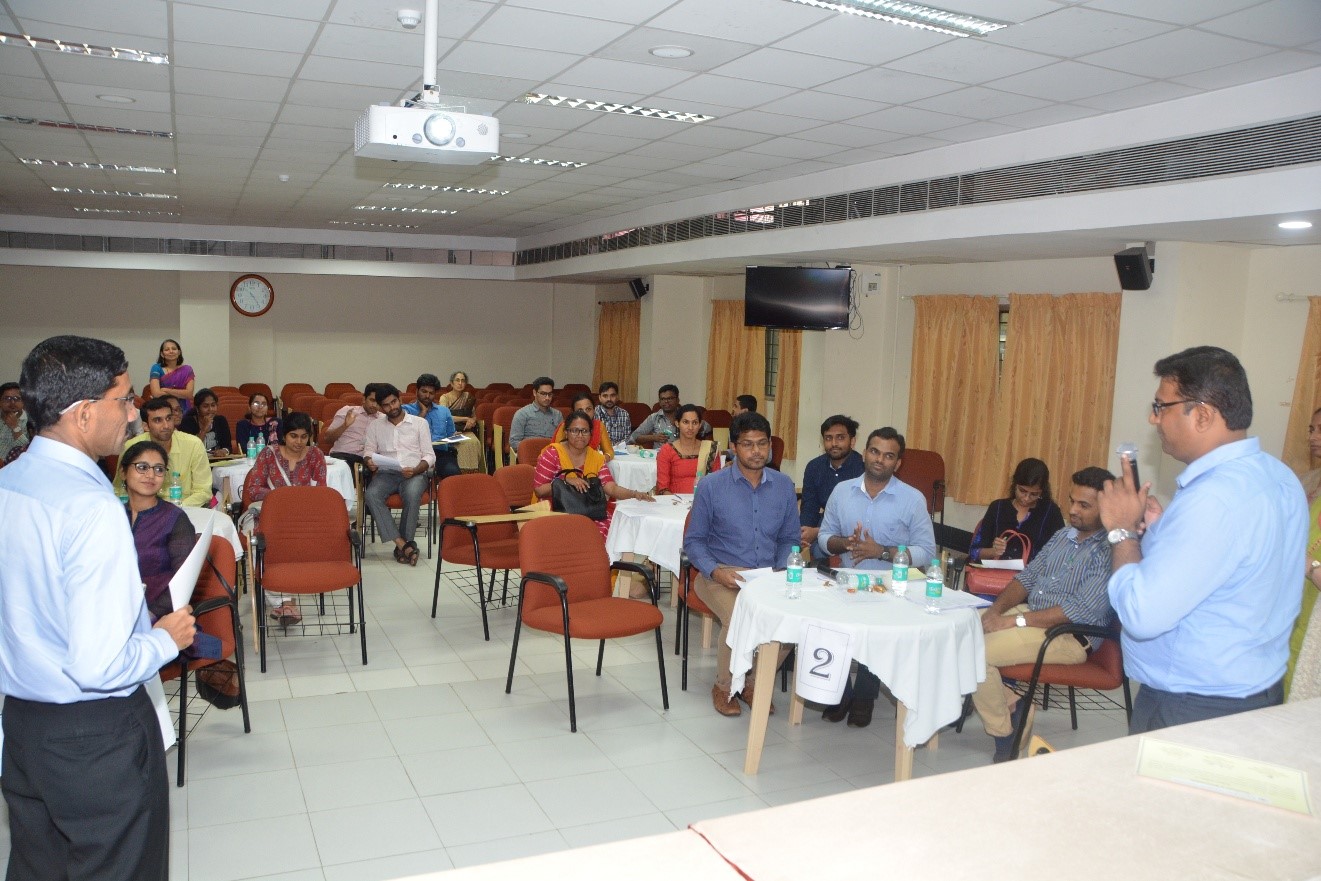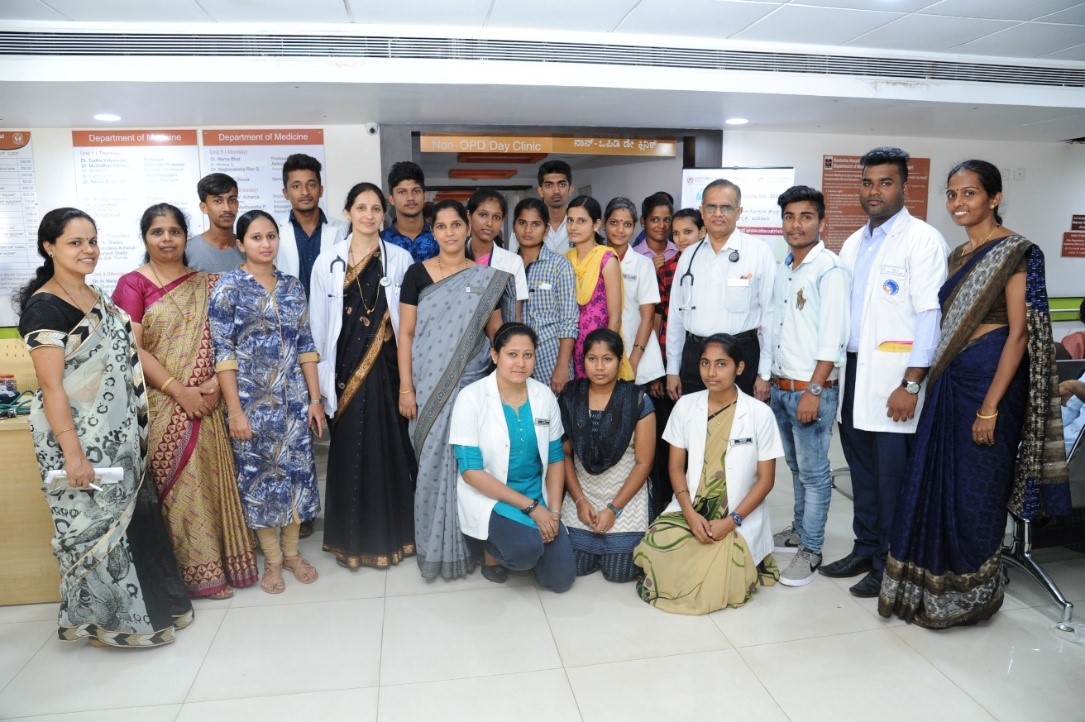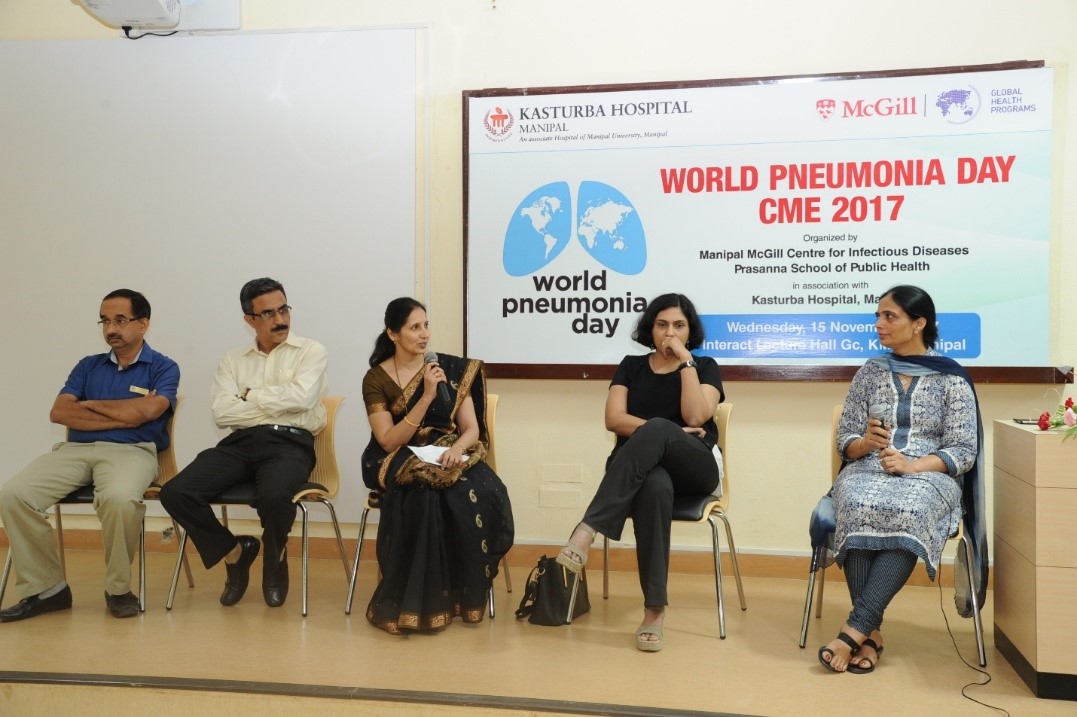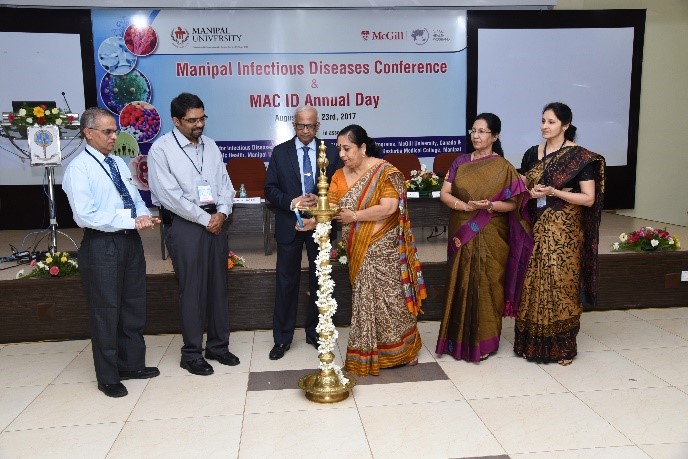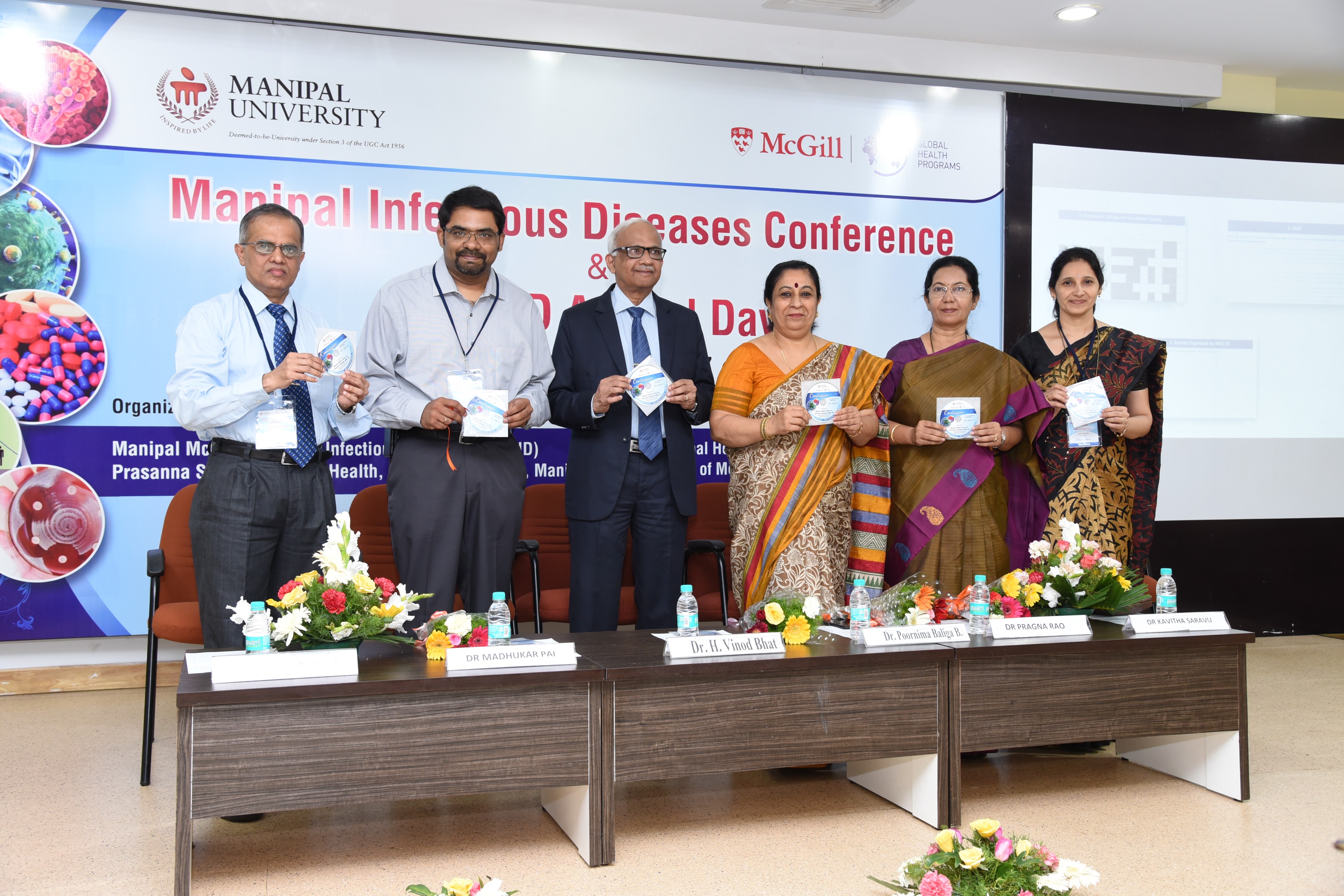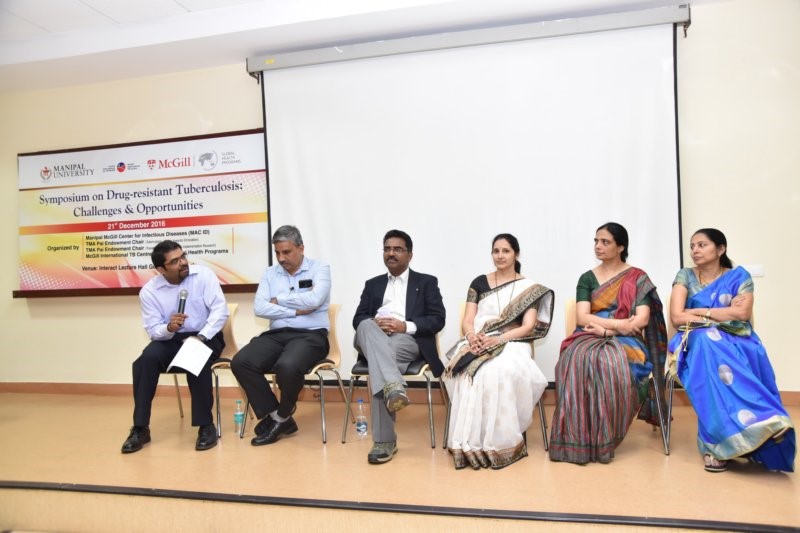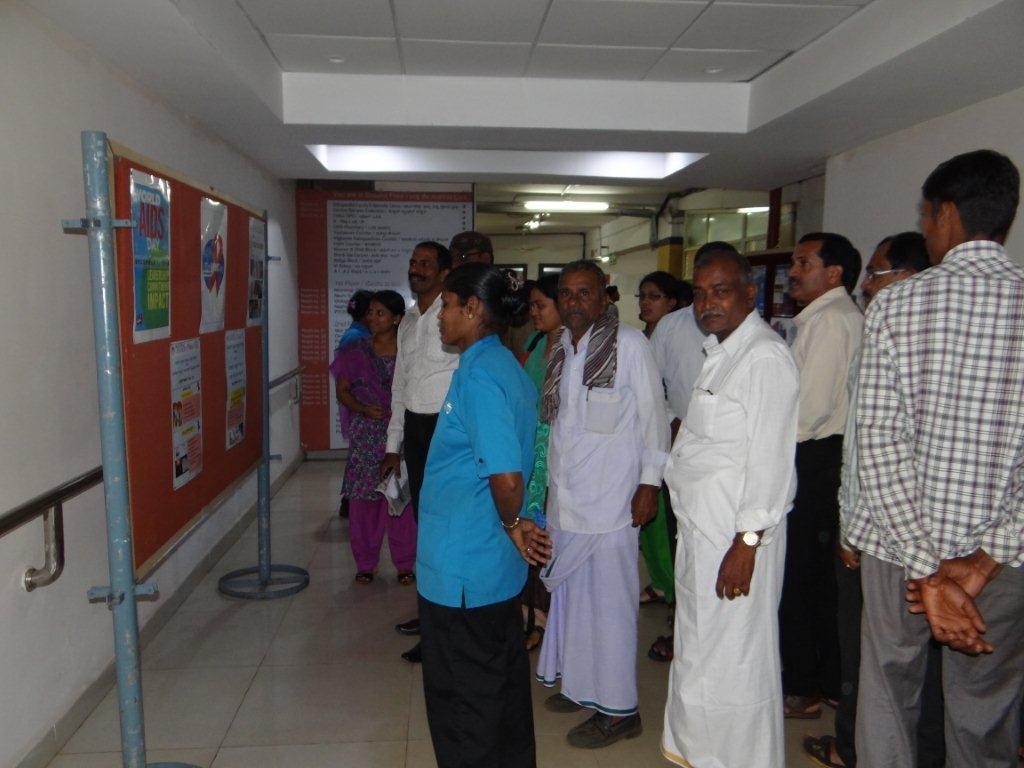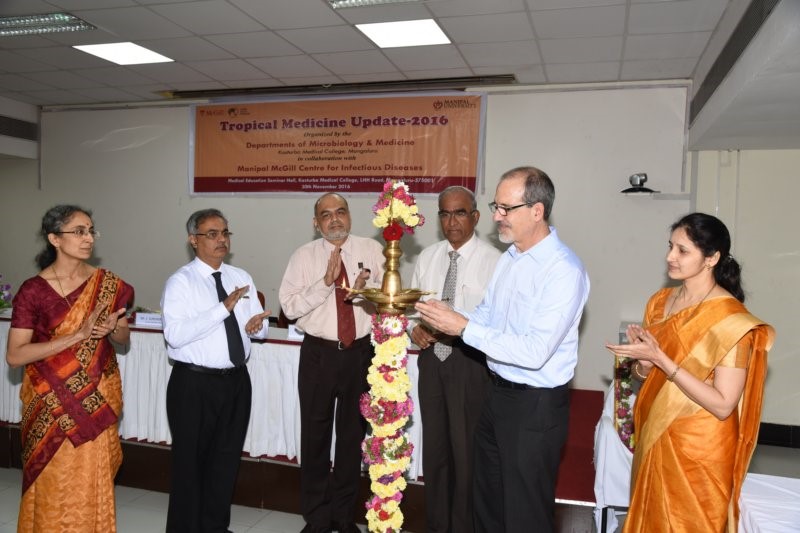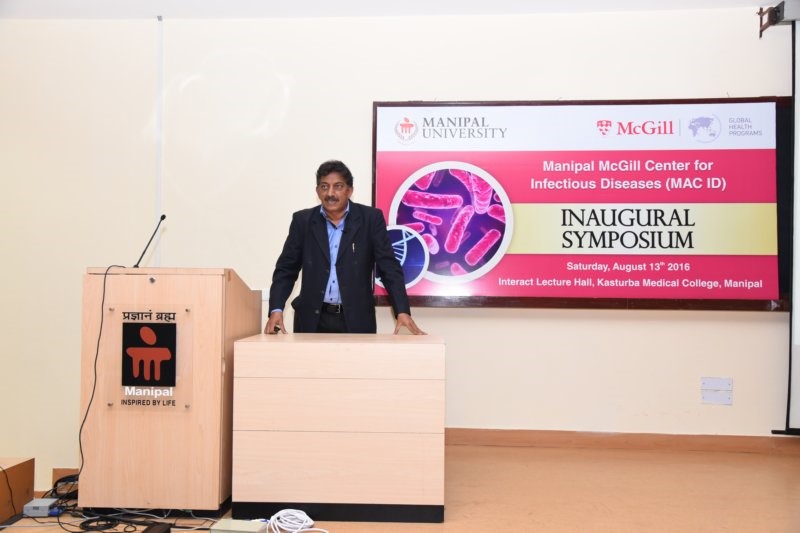On the occasion of World Antimicrobial Awareness Week 2021, the International Conference on Combating Antimicrobial Resistance was organised between Nov 18 2021 and Nov 24 2021 by the Department of Infectious Diseases, Kasturba Medical College and Hospital, Manipal and Manipal Center for Infectious Diseases (MAC ID), Prasanna School of Public Health, MAHE, Manipal, in association with Division of Infectious Diseases, Wayne State University, Michigan, Detroit, USA; Departments of Microbiology and Medicine, Kasturba Medical College, Mangalore; Department of Pharmacy Practice, Manipal College of Pharmaceutical Sciences ,MAHE, Manipal and Department of Emergency Medicine, Kasturba Medical College and Hospital, Manipal. The conference was held over 5 days, and featured 11 speakers who deliberated on different aspects of antimicrobial resistance and stewardship. Their talks were all centred on this year’s WAAW theme: ‘Spread Awareness, Stop Resistance.’ The conference was endorsed by the Clinical Infectious Diseases Society.
Inaugural function:
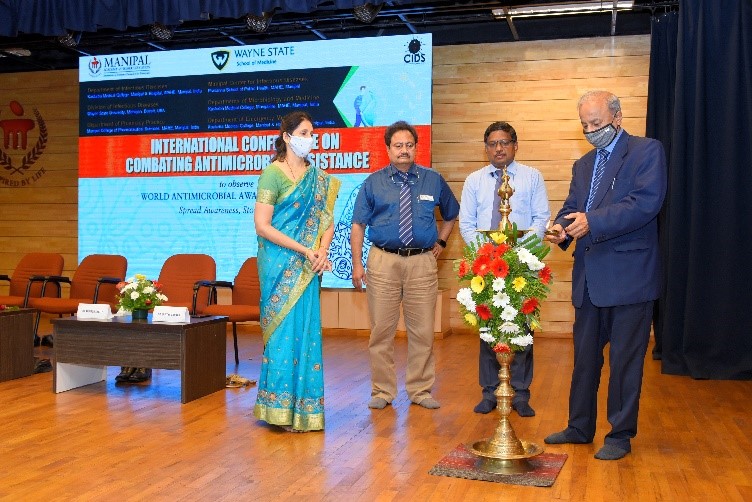
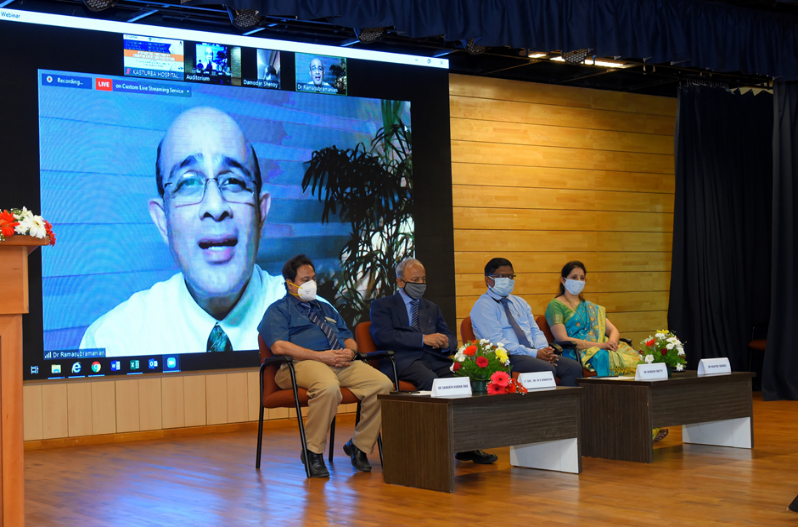
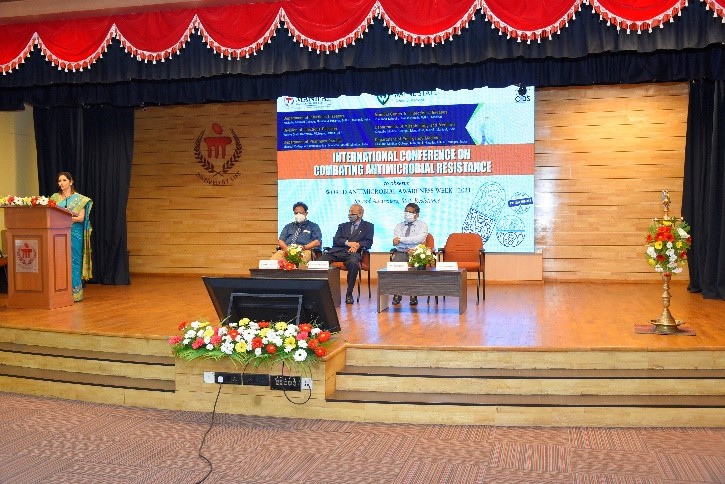
Dr Sharath Rao, Dean, KMC Manipal welcomed the gathering. Dr Kavitha Saravu, Organising Chair and Professor and Head of the Department of Kasturba Medical College, Manipal gave an overview about the conference. The chief guest for the program, Lt. Gen. (Dr) M D Venkatesh, Vice Chancellor, MAHE Manipal envisioned that Antimicrobial resistance has been declared as one of the top 10 public health threats to humanity by the World Health Organization, and is a very complex problem which requires a united multisectoral approach to address it. Dr Ramasubramanian, Senior Infectious Disease consultant, Apollo Hospitals, Chennai and the President of Clinical Infectious Diseases Society of India was the Guest of Honour. He urged all the institutional heads and policy makers to strengthen antimicrobial surveillance and ensure that the policies are practiced effectively. He also congratulated Dr Kavitha Saravu for organizing the conference and wished the best for the deliberations. Dr Sneha Deepak Mallya, Associate Professor of Community Medicine, proposed the vote of thanks.
Day 1:
18 November 2021
“Tackling MDR Gram Negatives”
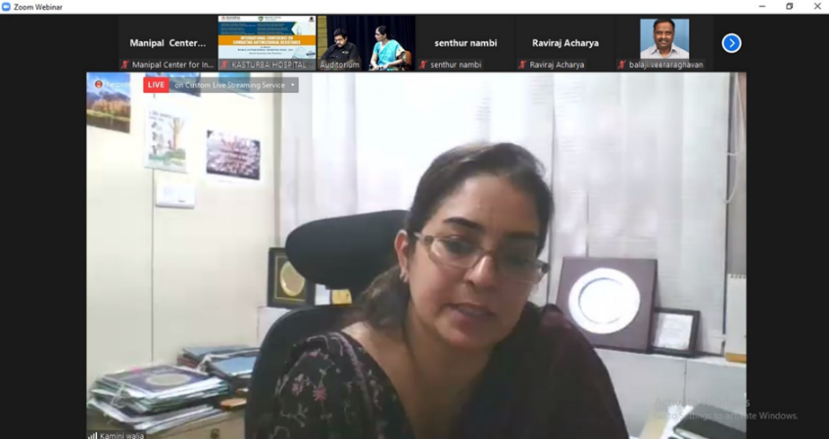
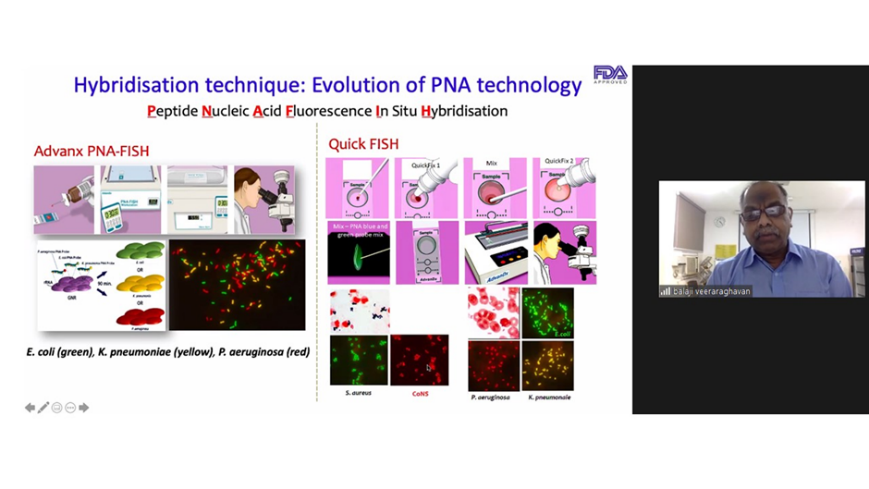
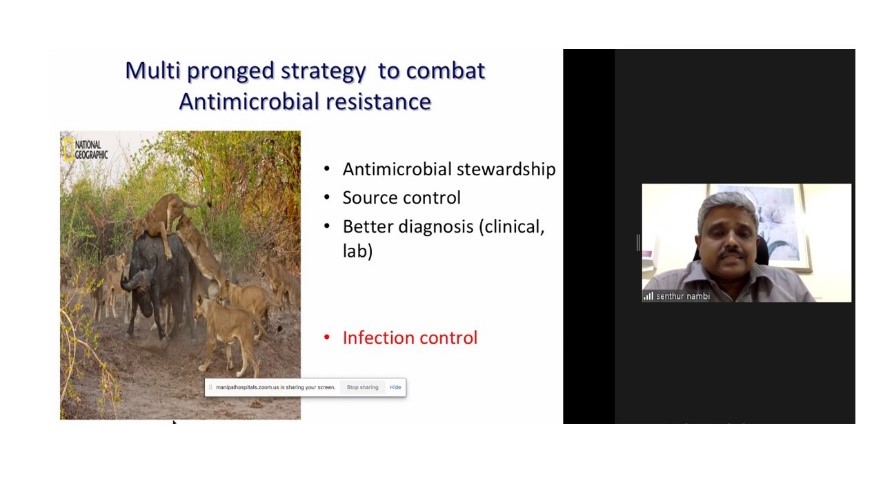 Speakers:
Speakers:
1. Dr Kamini Walia, scientist-F, Program Officer, AMR, Division of Epidemiology and Communicable Diseases, ICMR, New Delhi
2. Dr Balaji Veeraraghavan, Professor, Department of Microbiology, Christian Medical College, Vellore
3. Dr Senthur Nambi, Infectious Diseases Physician, Apollo Hosital, Chennai
Dr Kamini Walia spoke on the burden of multidrug resistant organisms in India. She started her speech by clarifying basic definitions and concepts related to MDR, and briefly talked about AMR trends in India. She reported the inferences drawn from various recent studies, pertaining to the relation between MDR infections and mortality, and the cost of treatment of drug resistant infections. She ended her speech by saying that resistance among gram negative pathogens has risen to epidemic proportions, particularly within hospitals and acute care settings; and in order to reduce the burden of MDROs , steps must be taken to improve infection control, improve diagnostic stewardship, increase surveillance and strengthen and promote research on the matter.
Dr Balaji Veeraraghavan gave a talk on “Bench to Bedside: Integration of Microbiology Diagnostics in AMSP”. He stressed on the importance of an integrated approach, comprising diagnostic stewardship, antimicrobial stewardship and infection control practices to address antimicrobial resistance. He then moved on to describing the sensitivity, specificity and turnaround time of both, conventional and novel diagnostic modalities. Lastly, he spoke on susceptibility testing and reporting policies for better AMSP.
Dr Senthur Nambi, deliberated on the treatment of MDR Gram negatives through a case-based approach. He discussed a variety of cases and the factors influencing the selection of the appropriate medications. He also elucidated the different treatment options for MDR Gram negatives. On a concluding note, he stated that infection control can be attained by adopting a multi-pronged strategy to combat AMR; the prongs being: 1) Antimicrobial stewardship, 2) Source control and 3) Better diagnosis.
Day 2:
19 November 2021
“Smarter Use of Antimicrobials for the Current Era”
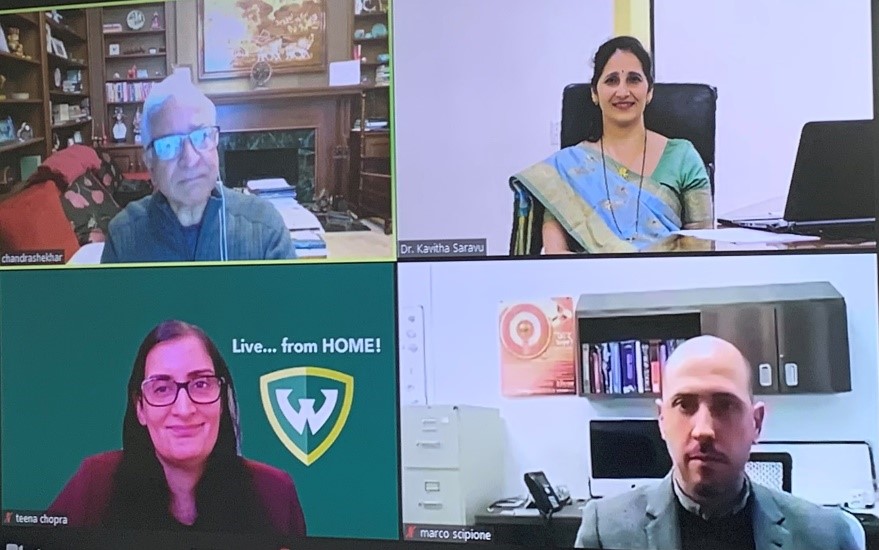 Welcome note by:
Welcome note by: Dr Chandrashekar, Professor of Medicine, Chief, Division of Infectious Diseases, Wayne State University, Karmanos Cancer Center, Michigan
Speakers:
1. Dr Sanjay Revankar, Professor of Medicine, Fellowship program Director, Division of Infectious Diseases, Wayne State University, Karmanos Cancer Center, Michigan
2. Dr Mario Scipione, Clinical Pharmacist Specialist, Infectious Diseases, Detroit Medical Center, Michigan
3. Dr Teena Chopra, Professor of Medicine, Division of Infectious Diseases, Wayne State University, Corporate Med Director, Detroit Med Center, Michigan
Dr Sanjay Revankar delivered a speech on ‘Drug Resistance in Antifungal Stewardship’. He spoke about antifungals in candidiasis and drug resistance in candida species. He moved on to explaining the importance of antifungal stewardship, an emerging field. He also gave many recommendations for its effective implementation. He wrapped up his talk by stating how the increasing antifungal resistance is a unique challenge with many issues to address, for which antifungal stewardship is a necessity.
Dr Mario Scipione spoke on ‘Evolving Role of Clinical Pahrmacy as an Integral part of AMS ’. He briefly traced the history of Antimicrobial Stewardship. He then elaborated on how various aspects of AMS such as IV to PO conversions and comparisons, dose optimisation, rapid diagnostics and prospective audits and restricted formularies are all linked to clinical pharmacy. He also outlined the roles of pharmacy directors, hospital pharmacists and ASP pharmacists. He concluded by giving insights on the future of clinical pharmacy in ASP.
Dr Teena Chopra deliberated on the topic ‘Code Blue of AMS’. She enumerated the effects of antibiotic use during the COVID-19 pandemic. She gave detailed explanations on factors that both, increased and decreased the levels of AMR during the pandemic. Finally, she mentioned numerous measures that can be taken up in order to address AMR in the COVID-19 pandemic, namely; 1) targeted training to increase competence among healthcare workers, 2) ensuring the continuity of essential health services and regular supply of quality assured and affordable antimicrobials, 3) reducing the turnaround time of COVID-19 testing, 4) Exercising caution in the use of biocodes and 5) Addressing gaps in research.
Day 3
22 November 2021
“Combating Antimicrobial Resistance Optimizing Prescriptions”
 Welcome note by:
Welcome note by: Dr Suchitra Shenoy, Professor and Head, Department of Microbiology, Kasturba Medical College and Hospital, Ambedkar Circle, Mangalore
Speakers:
1. Dr Pooja Rao, Associate Professor of Microbiology and Infection Control Officer, Kasturba Medical College and Hospital, Ambedkar Circle, Mangalore
2. Dr Dattatray Prabhu, Associate Professor of Anaesthesia, Critical Care Physician, Kasturba Medical College and Hospital, Mangalore
3. Dr Shafir Kasim , Assistant Professor of Medicine, Infection Control Officer, Kasturba Medical College, Attavar, Mangalore
Dr Pooja Rao gave an overview on glycopeptide resistance in gram positive cocci. She explained the risk factors, modes of transmission, mechanism of action and the genetic basis of vancomycin resistance in gram positive cocci, particularly enterococci. She then spoke on the treatment options for vancomycin resistant organisms. She also mentioned newer glycopeptide antibiotics such as telavancin, dalbavancin and oritavancin and their current role in fighting glycopeptide resistance. Her closing remarks were that the prevalence of drug resistance is bound to increase with irrational use of antibiotics; and that restricting the usage of antibiotics and strictly enforcing antibiotic stewardship programs are vital steps that have to be taken in order to curb AMR.
Dr Dattatray Prabhu spoke on treatment options for MRSA infections. He stressed on the importance of early identification of MRSA and stated that the development of new molecular and immunochromatographic testing technologies have the potential to dramatically shorten delays to diagnosis and treatment of MRSA infections. He gave an account of the novel antibiotics that have become available to provide effective alternatives for strains that have acquired resistance to existing drugs. He concluded by highlighting the fact that even though these advantages do not preclude the need for vigilance and effective MRSA prevention strategies, they help mitigate some of the challenges associated with MRSA bacteraemia treatment.
Dr Shafir Kasim enlightened the audience with his talk on ‘Outpatient antimicrobial stewardship: Opportunities and Barriers’. He gave an overview on patient barriers, doctor barriers and commercial barriers. He spoke on the various challenges in implementing stewardsip such as competition among doctors, time constraints, minimal supporting facilities and poor enforcement of regulations. He finished his speech by describing various sustainability measures (such as ensuring the availability of microbiological culture facilities, the use of incentives, following universal antibiotic policies and a robust feedback system) that can be taken up to implement the elements of antimicrobial stewardship effectively.
Day 4
23 November 2021
“Antimicrobial Stewardship in Critical Care”
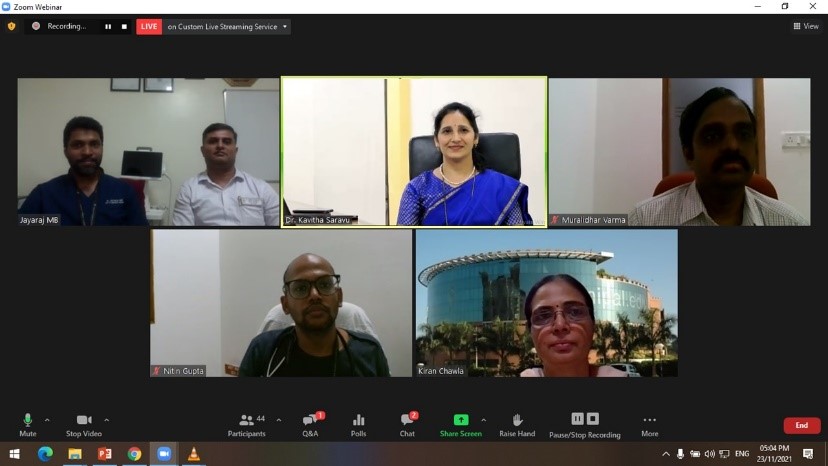 Welcome note by:
Welcome note by: Dr Kavitha Saravu, Professor and Head, Department of Infectious Diseases, KMC, Manipal.
Speakers:
1. Dr Jason Roberts, consultant clinical pharmacist, Royal Brisbane and Women’s Hospital and Research Chair, University of Queensland Centre for Clinical Research
2. Dr Muralidhar Varma, Associate Professor, Department of Infectious Diseases, Kasturba Medical College and Hospital, Manipal and Chairman, HICC, Kasturba Medical College and Hospital
Dr Jason Roberts spoke on the topic ‘Optimising Antibiotic Dosing in ICU’. He discussed the various challenges with antimicrobial dosing and the advantages of pharmacokinetic and pharmacodynamic considerations in critical care. He also talked about the relevance of Augmented Renal Clearance, Renal Replacement Therapy and ECMO in clinical practice. He briefly discussed the following options for dose optimisation to achieve PK/PD targets: 1) Unit-level Interventions 2) Dosing nomograms for individual patients 3) Dosing software and 4) Therapeutic drug monitoring. He ended his speech by reiterating that the understanding of pharmacokinetics can assist dose optimisation as clear concentration-effect relationships exist for antibiotics.
Dr Muralidhar Varma discussed Antimicrobial Stewardship via a case based approach. He recounted several interesting case scenarios and brought out key messages that were to be learnt from each of these scenarios. He emphasised The Four Moments of Antibiotic Decision Making i.e. : 1) Making the Diagnosis 2) Cultures and Empiric therapy 3)Stop, narrow ,change to oral route and 4) Determining the duration of treatment. And finally, he talked about the importance of working as a team in order to optimize clinical outcomes.
Day 5:
24 November 2021
Antimicrobial Quiz- The Grand Finale
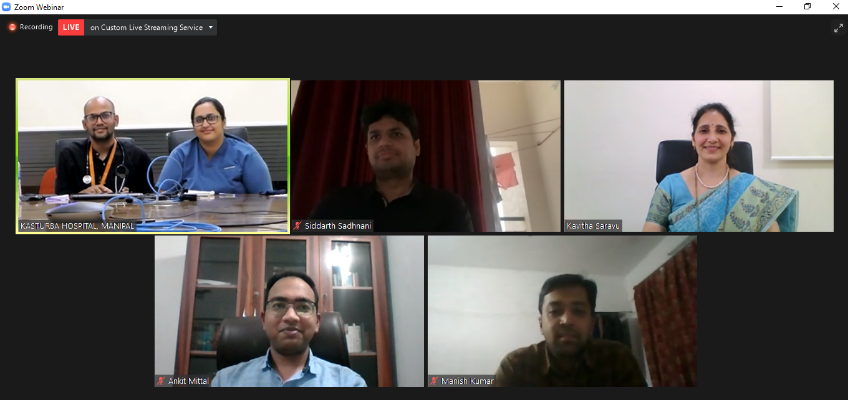 Quizmasters:
Quizmasters:
1. Dr Nitin Gupta ,Assistant Professor, Department of Infectious Disease, KMC, Manipal
2. Dr Prithvishree Ravindra, Assistant Professor, Department of Emergency Medicine, KMC, Manipal
This national level antimicrobial quiz comprised of 4 rounds. It was indeed a splendid clash between razor sharp brains…. a spectacular battle of the wits right from the beginning all the way till the end. After an hour’s worth of challenging interrogations, nail-biting twists and extremely close competition, Dr Ankit Mittal emerged the winner, and Dr. Siddarth Sadhnani the runner up.
The conference concluded with a valedictory function with Dr Kavitha Saravu congratulating the winners of various competitions. She also expressed her gratitude to all who helped in organising the conference and contributed to its success.
Going Blue for #AMR
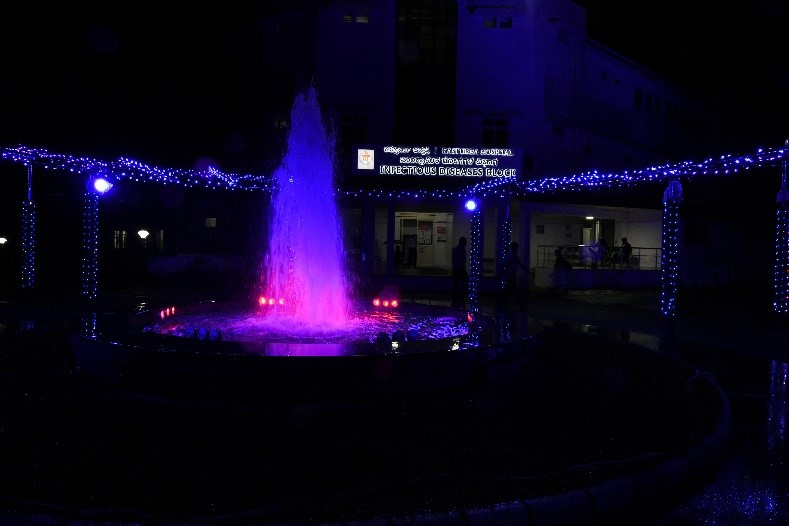
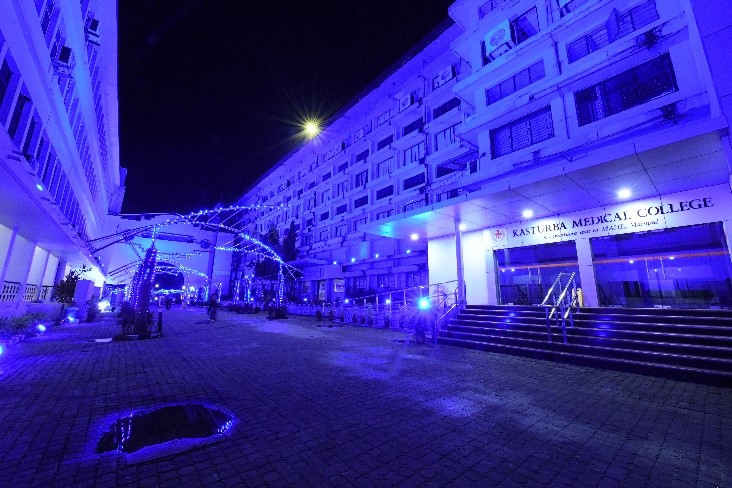
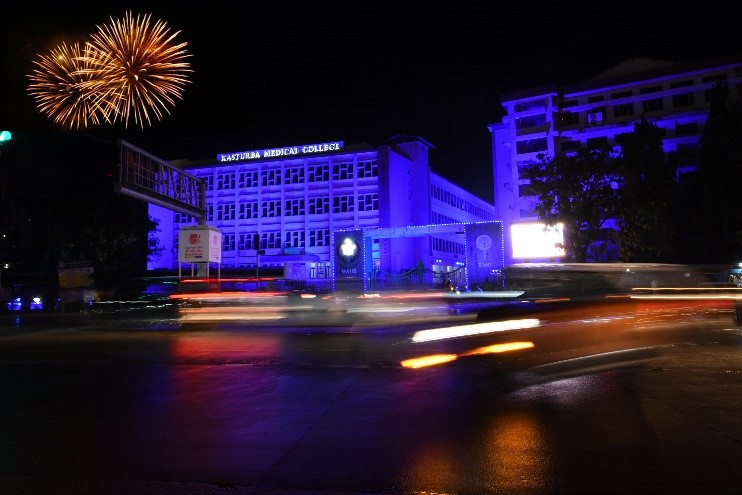
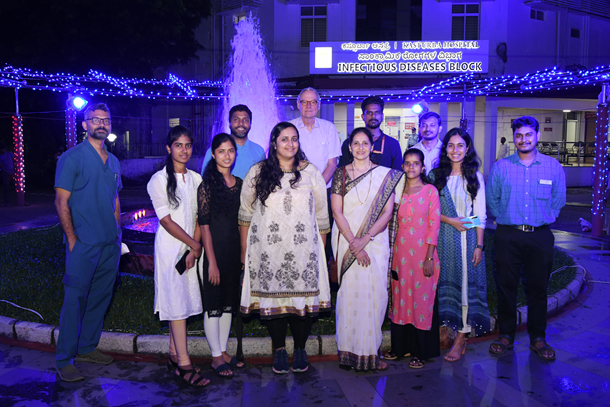 #WAAW
#WAAW
In the light of this year’s WAAW theme (i.e. Spread Awareness, Stop Resistance); individuals, workplaces and communities were invited by the World Health Organization to join a colour campaign to spread awareness on AMR. Light blue was chosen as the colour of AMR Awareness by WHO. It symbolises health across sectors, and the multisectoral collaborative effort that is required to address this universal threat; and also represents the multitude of individuals and communities who are both, affected by AMR and whose actions have the power to curb the issue of AMR.
ba Medical College,Manipal contributed to spreading awareness on AMR by lighting up the campus in blue on 24th November 2021. Indeed, it was quite a spectacular sight!
3rd Manipal International Infectious Diseases conference – August 10th & 11th 2019
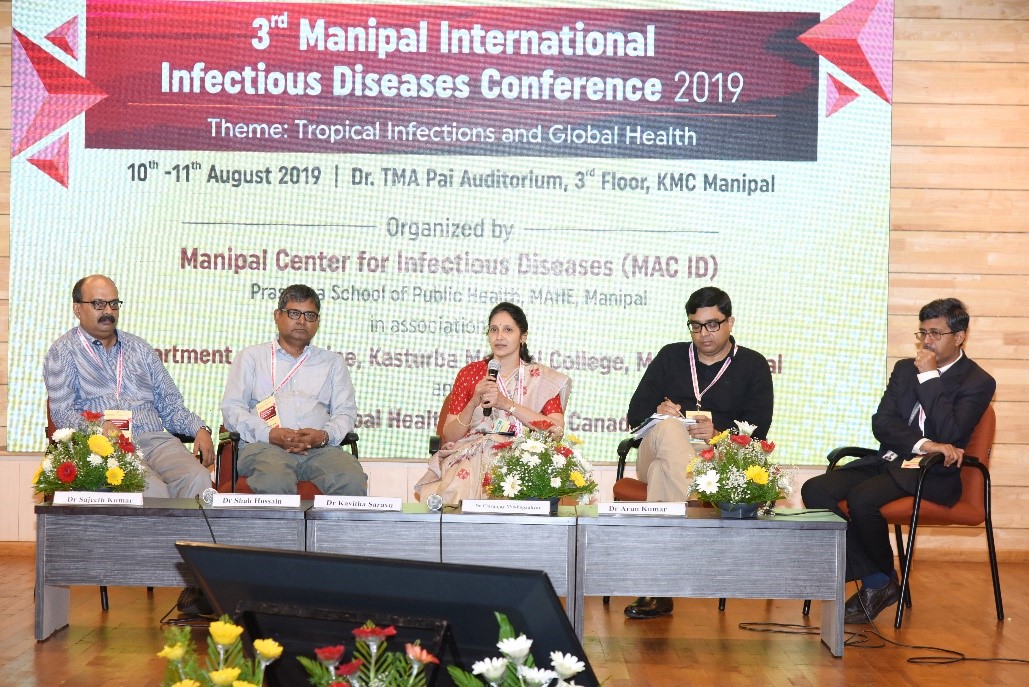
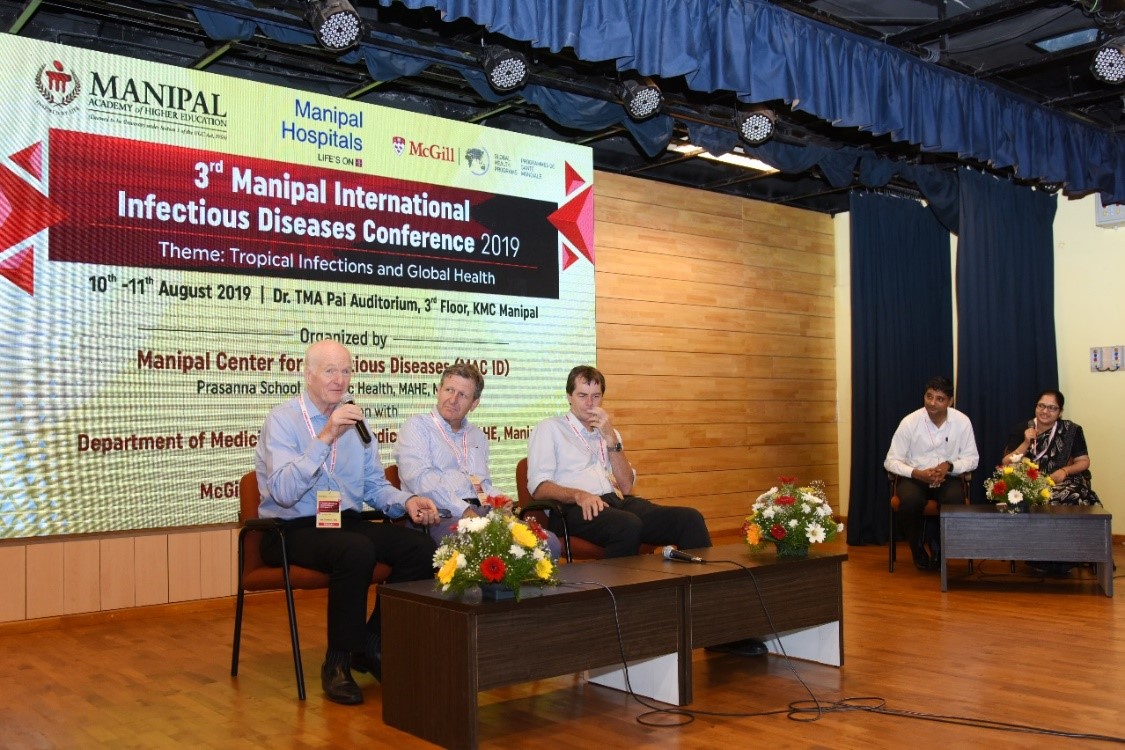
The 3rd Manipal International Infectious Diseases Conference 2019, was organized on August 10th and 11th by Manipal Center for Infectious Diseases (MAC ID), Prasanna School of Public Health in association with the Department of Medicine, Kasturba medical College, Manipal and McGill Global Health Program, Canada on the theme “Tropical Infections and Global Health”. It brought together over 210 interested faculty, students and research scholars
Dr Sharath Rao, Dean, KMC Manipal welcomed the gathering. Dr Kavitha Saravu, the joint Coordinator of MAC ID gave the overview of activities of MAC ID and the conference. The Conference was inaugurated by the Vice Chancellor, Dr Vinod Bhat and he envisioned that in coming days “One health” approach and surveillance should be the way forward for early detection of infectious disease outbreaks. The guest of honor was Dr Poornima Baliga and released the MAC ID newsletter ‘Contagion’ and wished the best for the deliberations. Dr Sneha Deepak Mallya, Associte Professor of Community Medicine, proposed the vote of thanks.
Sir Nicholas J White, Professor of Tropical Medicine at Oxford and Thailand, gave a key note on Malaria: The past, present and future. He traced the history of malaria, evolution of drug resistance in malaria. He hinted that the malaria vaccines could potentially be valuable in low endemic areas to eliminate malaria.
In another key note,
Dr Ravi Vasanthapuram, Professor of Neurovirology at NIMHANS Bangaore highlighted the epidemiology of Acute encephalitis syndrome, newer testing algorithms, and the need for early identification of treatable causes of encephalitis for improved outcomes.
Dr David Richard Bell, Global Health Expert from Seattle, USA spoke on Diagnostics of Acute fever: Technology Innovation meets reality and spoke on Challenges in availability & use of Point of care diagnostics, biomarkers for diseases severity and the importance of true costs of diagnostics for the national program. He also highlighted on the methods available for detection of low level malaria parasitemia in elimination settings.
Prof Nicholas P J Day, Professor of Tropical Medicine at Oxford and Thailand gave overview of antimicrobial resistance globally, need for better ways of estimates incorporating clinical outcomes and alluded to antibiotic footprints as communication tools. He also spoke on the iceberg phenomenon of melioidosis, and the high risk of diabetic patients acquiring the infection and the increasing need for laboratories capable of identifying the bug responsible for melioidosis.
Dr Jesse Pappenberg Paediatric Infectious diseases specialist from McGill University, Canada spoke on Advanced Molecular Diagnostics/POC tests in Respiratory Infections and emphasized the need to choose the diagnostics wisely and the need for influenza vaccination. Despite efforts to improve prevention and management in pediatric pneumonia, the burden remains huge. Determining the causative agent still presents a challenge at both individual and population level and antibiotics are being overused in pediatric CAP and bronchiolitis.
The Indian Scenario of HAI and AMR: Results from India AMR Surveillance Network were presented by
Prof Purva Mathur from AIIMS, New Delhi showed alarming rates of drug resistance; she spoke on the ICMR initiative on Antimicrobial Stewardship across Indian hospitals to curtail AMR.
Dr Ram Gopalakrishnan, infectious diseases specialist from Apollo Chennai discussed the Current Options and Strategies for the treatment of Drug Resistant Gram Negatives in India and infections in immunocompromised patients.
Dr Swati Rajagopal Infectious Diseases and Travel Medicine Consultant from Bangalore presented Management of Drug Resistant Gram Positives.
Dr John Jude Prakash from CMC, Vellore spoke on epidemiology and diagnosis of Scrub Typhus & other Rickettsiosis.
Dr Patricia Fontela, paediatric intensivist from McGill University, Canada discussed about the utility of biomarkers in reducing the duration of antibiotics. Dr John Jude Prakash, Professor of Micobiology from Christian Medical College spoke on the epidemiology and diagnosis of Scrub typhus and other Rickettsiosis.
Dr Reeta Mani, Additional Professor of Neurovirology from NIMHANS Bangalore presented the recent updates on antemortem diagnosis and management of Rabies and newer simplified vaccine schedule.
Dr Manisha Madkaikar, Director of National Institute of Immunohaematology from KEM Hospital, Mumbai spoke on Primary immunodeficiency in Children and adults. She also gave another talk on Infection induced HLH. Infection induced HLH diagnosis requires a high index of suspicion. Only 10 % cases are familial. However, she emphasized that we must rule out familial HLH even in suspected secondary HLH cases
2nd day of the conference saw many topics on outbreaks.
Dr Sajeeth Kumar, Medical Suerintendent and Professor of Medicine, Kozhikode Medical College, spoke on the Lessons learnt from Nipah virus outbreak in Kerala. Though it is a deadly infection, a strategic management plan and skilled team effort saved the day, he stressed.
Professor G. Arun Kumar, Director of Manipal Institute of Virology gave a talk on Emerging Viral Hemorrhagic Diseases such as KFD, Ebola, Dengue haemorrhagic fever and Crimian Congo Haemorrhagic fever(CCHF). An interactive session on what to publish, how to publish and where to publish by Prof. Nicholas Day, Prof. Nicholas White and Dr. David Bell was moderated by Dr Sneha Deepak Mallya, KMC and Dr Murali T S from School of Life Sciences.
An informative panel discussion on
Outbreak management: The Road ahead was led by Dr. Kavitha Saravu, Eminent panelists including Dr Sajeeth Kumar, Dr Shah Hossain, Dr Chiranjay Mukhopadhyay and Dr Arunkumar emphasized the need for surveillance in the community and the lab, need for more laboratories equipped with skills and technology to detect the pathogens, coordinated rapid response system and the need for strengthening of infection prevention practices.
The conference was attended by >200 delegates, from Boston, Germany, Malaysia and within India from Delhi, Punjab, Gujarat, Maharashtra, Tamil Nadu, Andhra Pradesh, Kerala and Karnataka. They included practitioners, consultants, researchers, post graduates and faculty of various streams related to ID. There were > 100 abstracts on various themes and they were of very good quality; top 14 were presented as oral presentations. An ID quiz was held for the post graduate student delegates by Dr Suneel Mundkur, Professor of Paediatrics, KMC Manipal which was of high quality and was well appreciated.
The conference concluded with a valedictory function with Dr Jesse Pappenberg, Dr Chiranjay Mukhopadhyay, and Dr Murali T S awarding prizes to winners of various competitions. Dr Kavitha Saravu, expressed gratitude to all who helped in organizing the conference and contributed to its its success.
